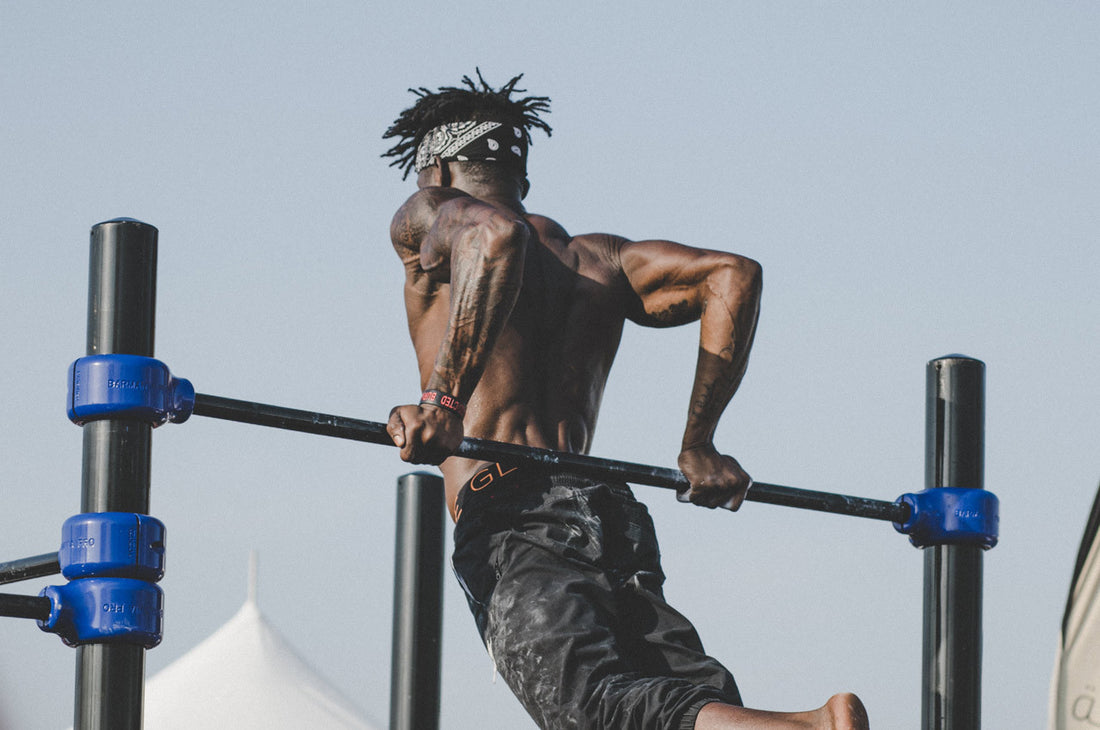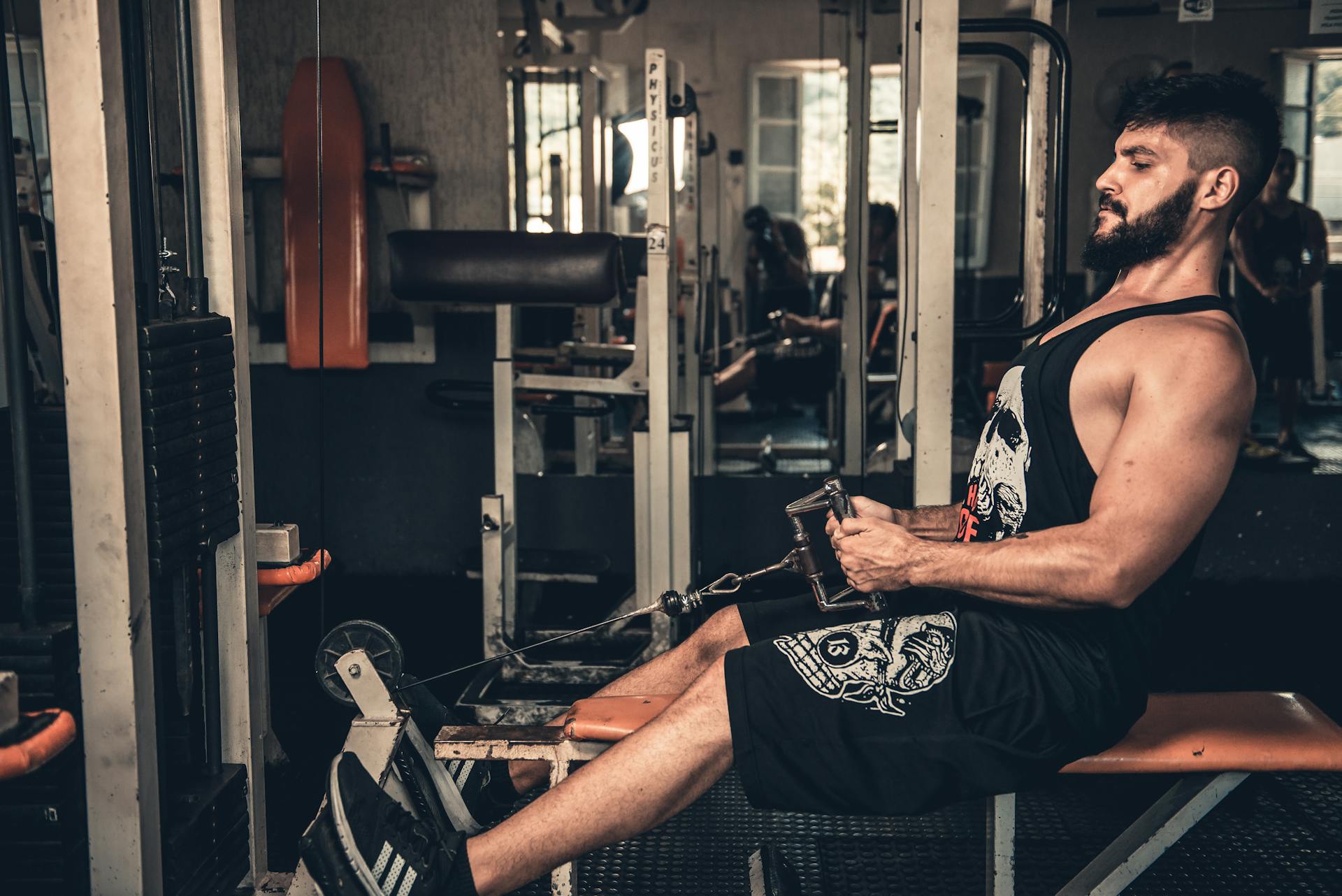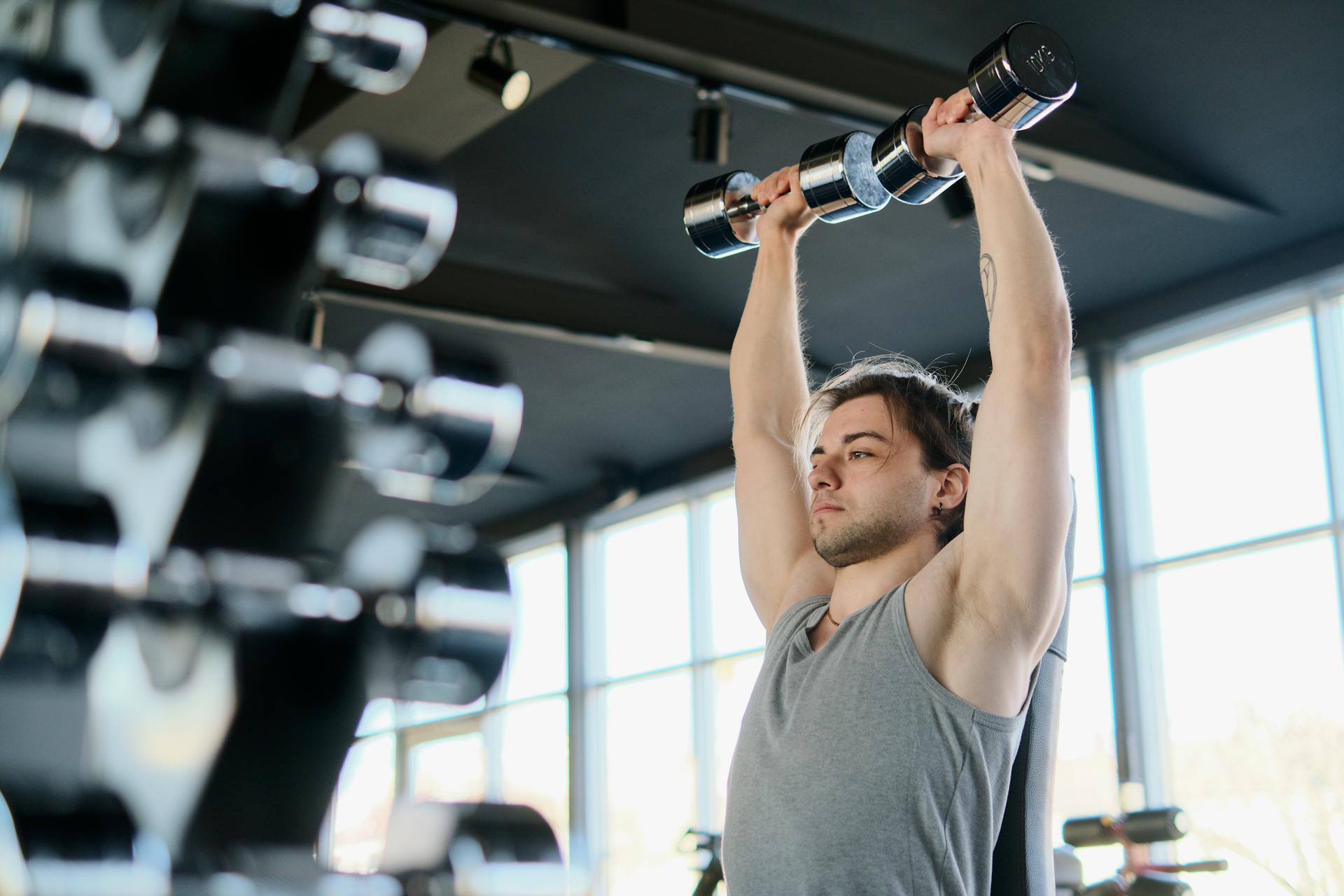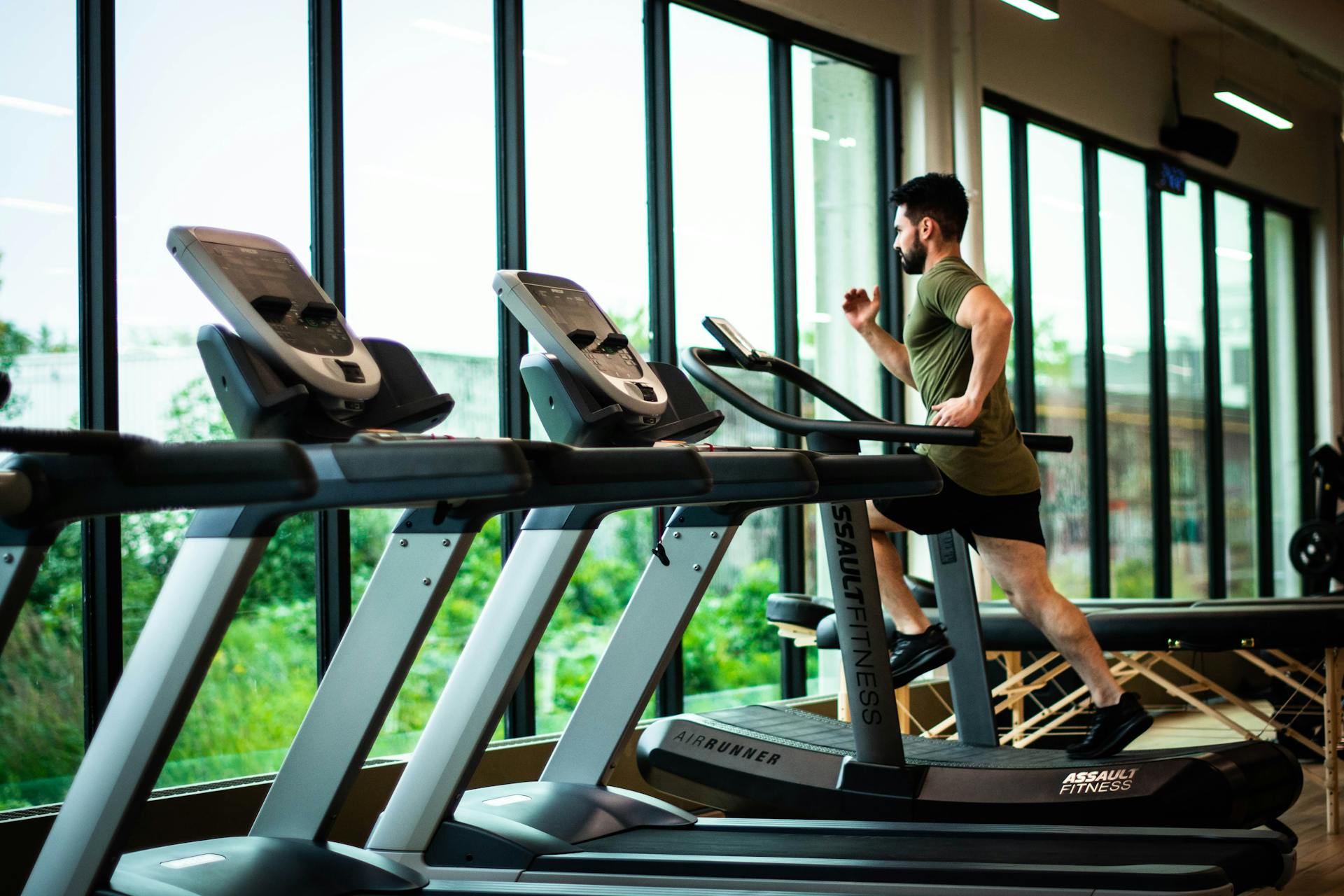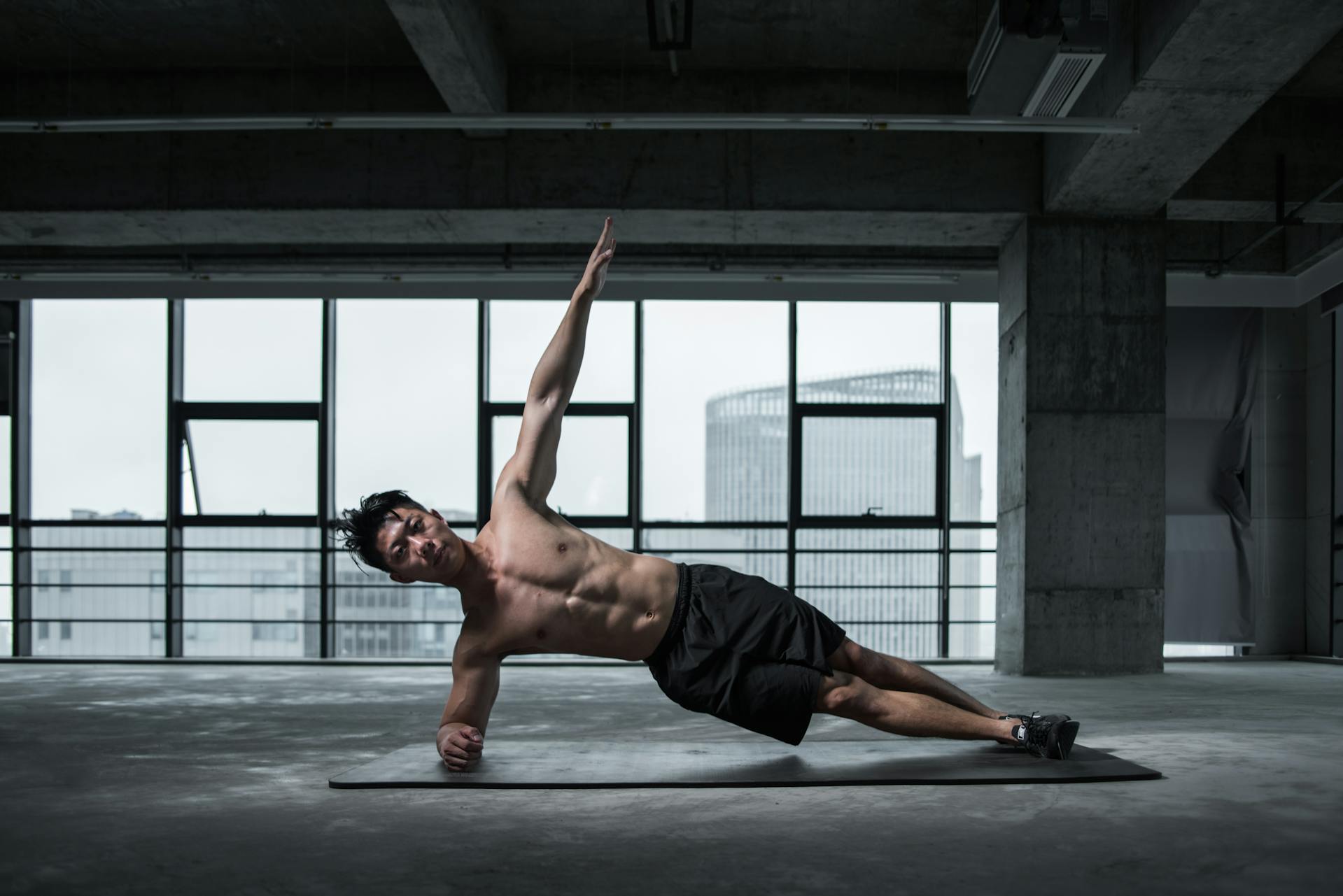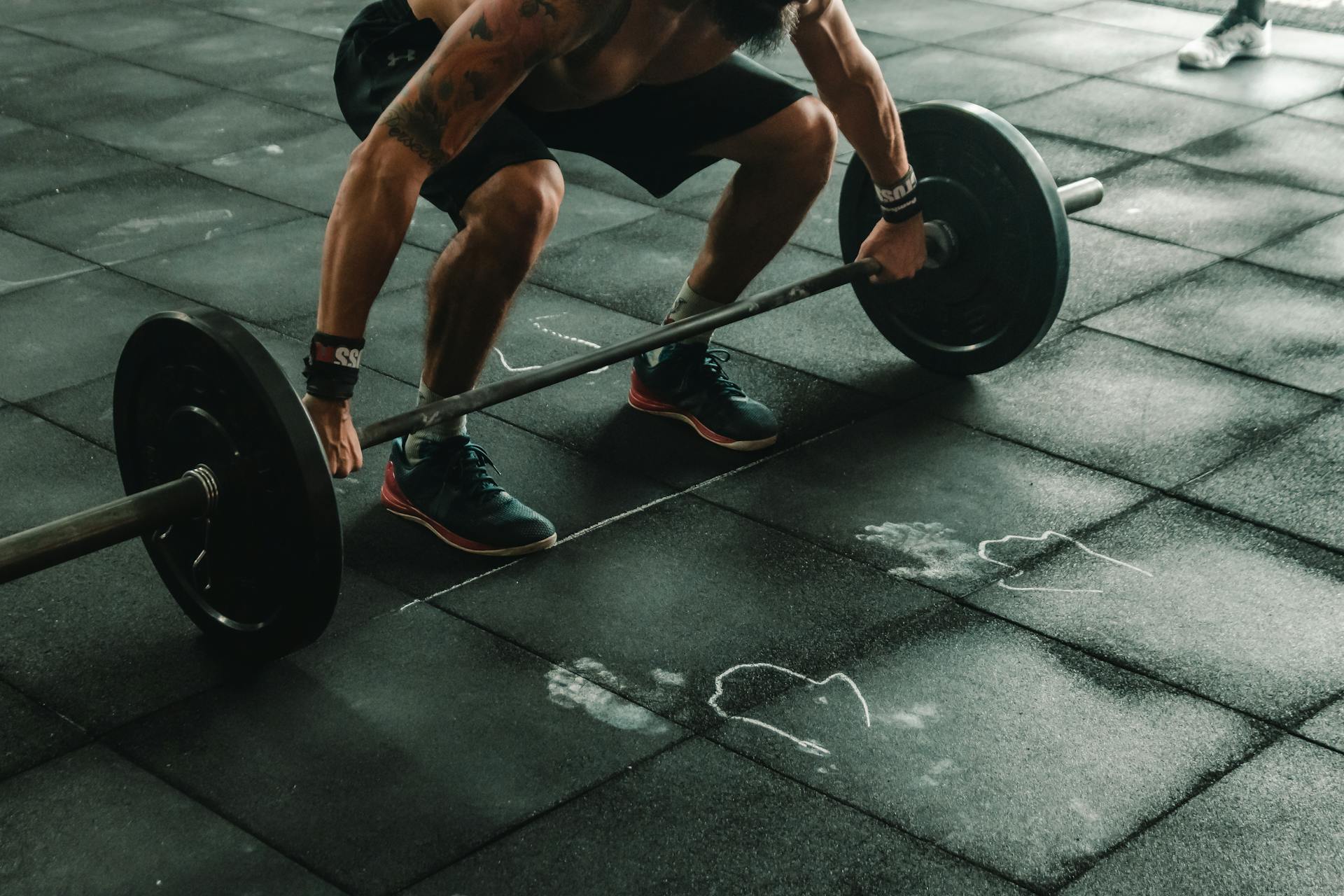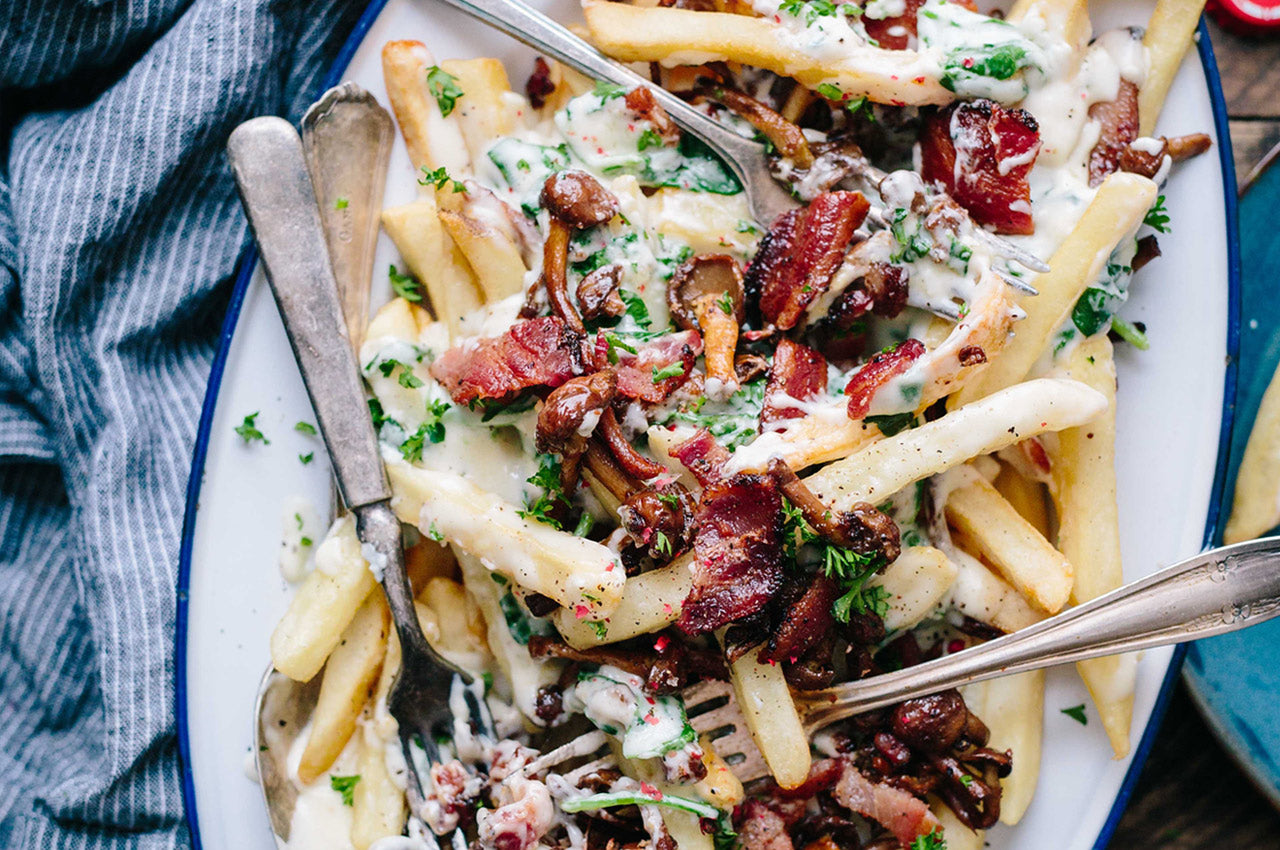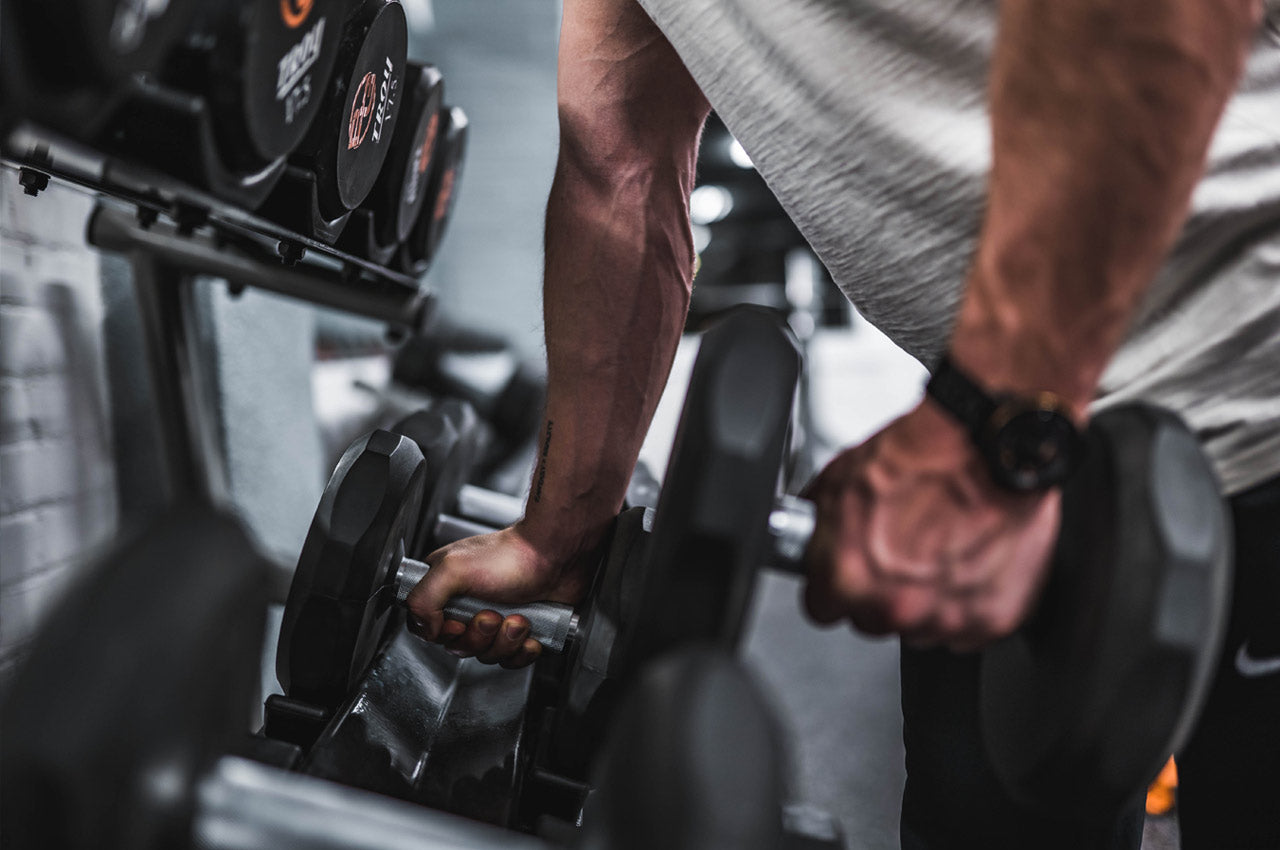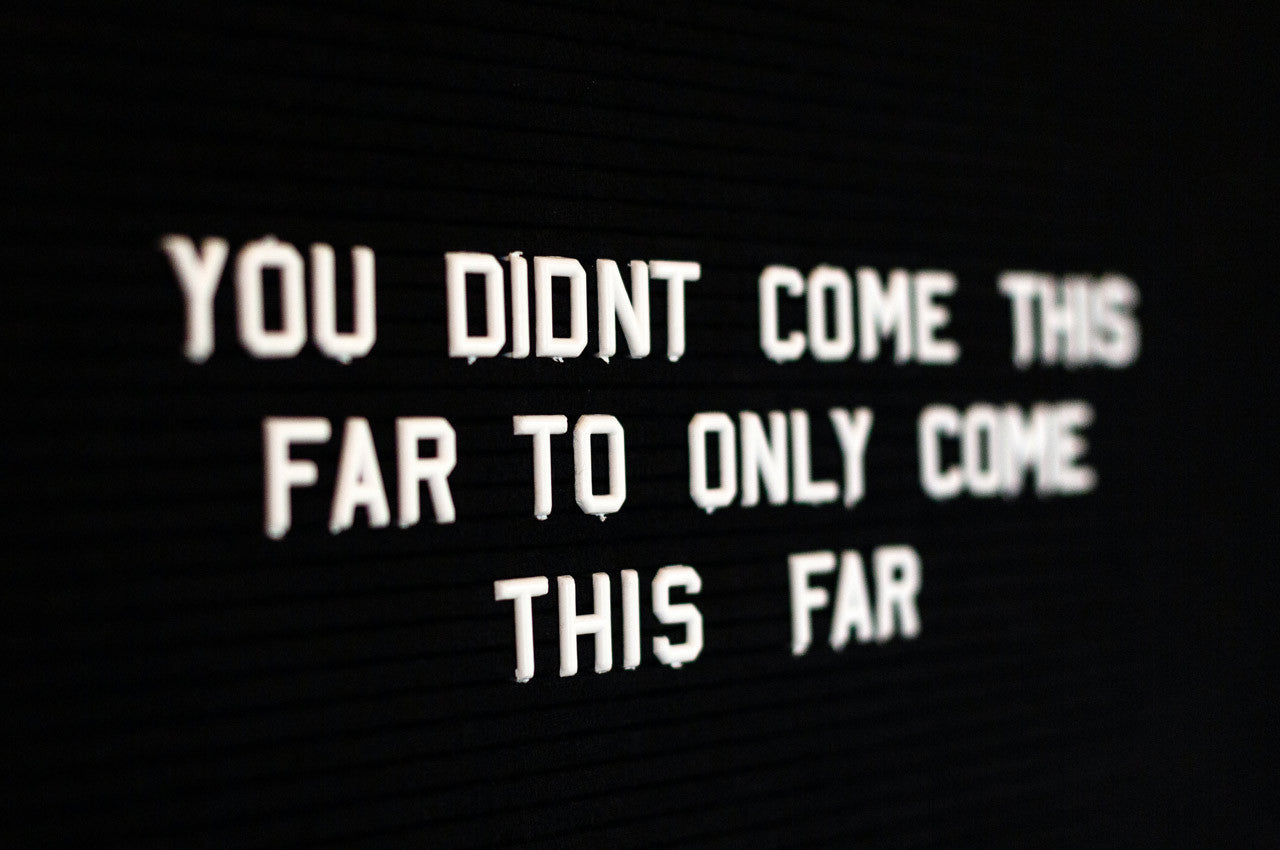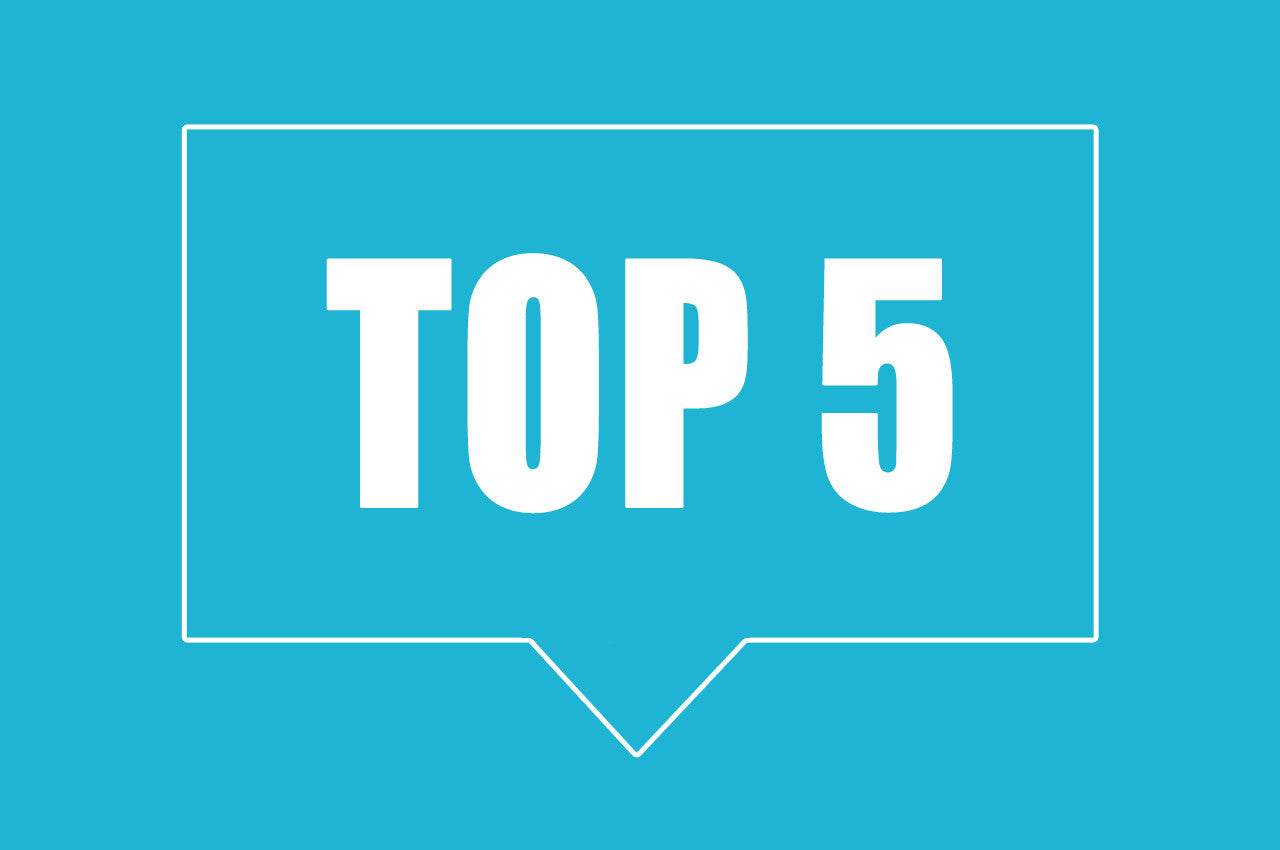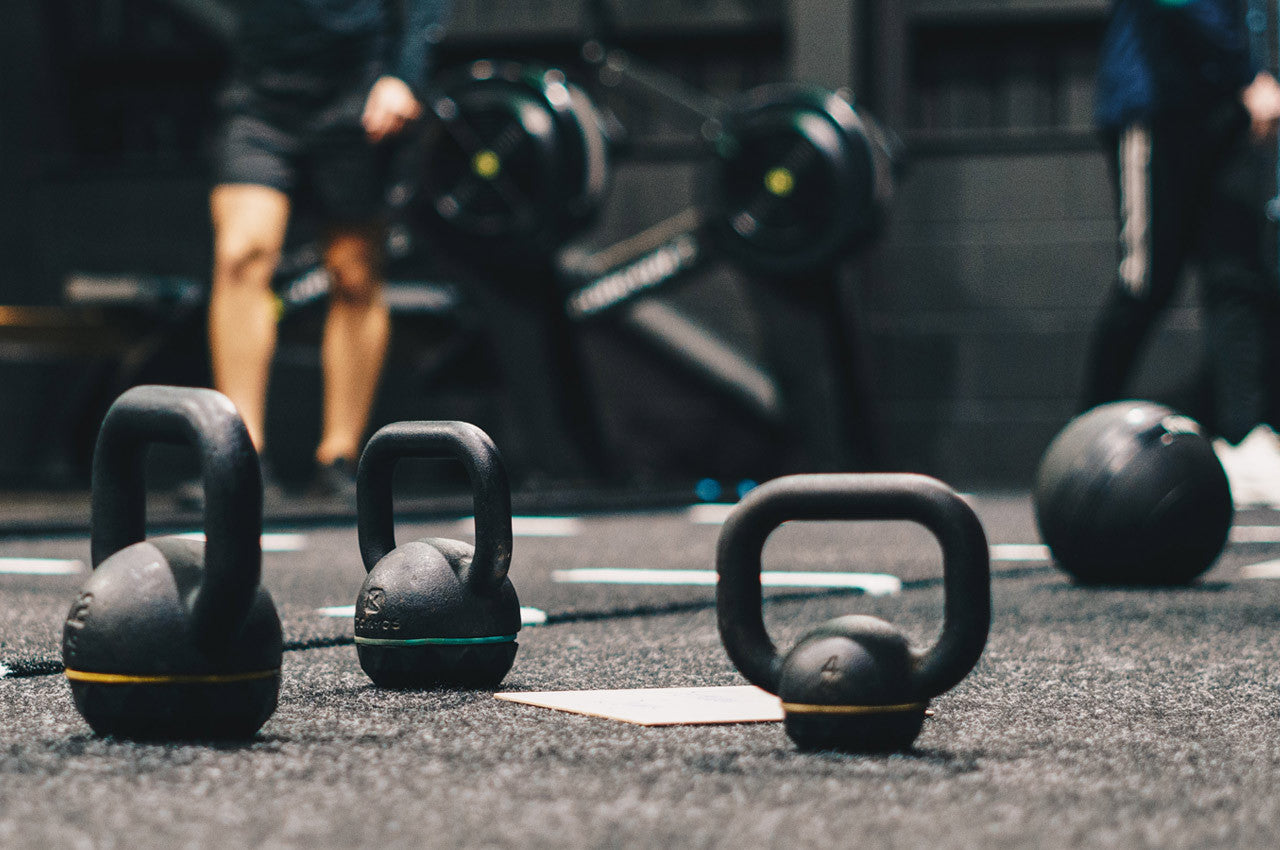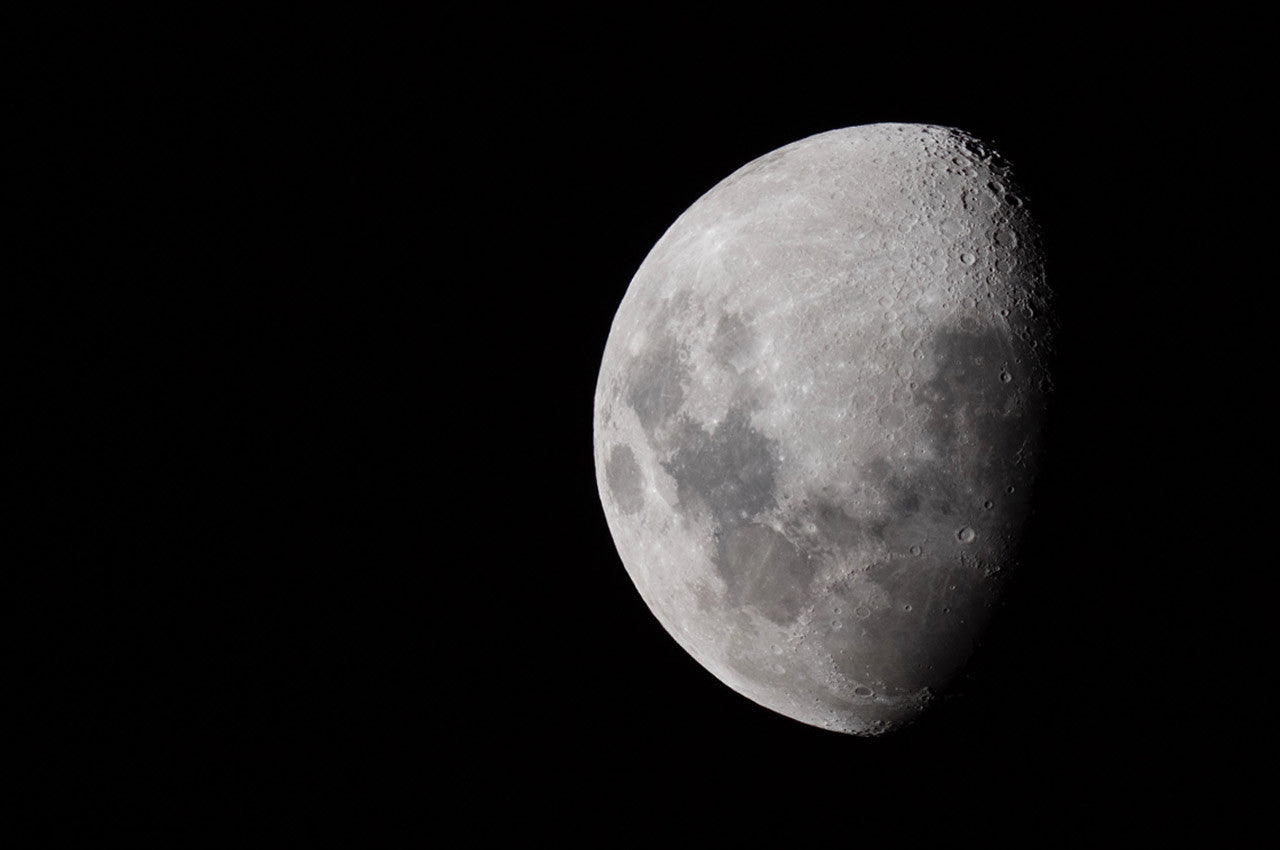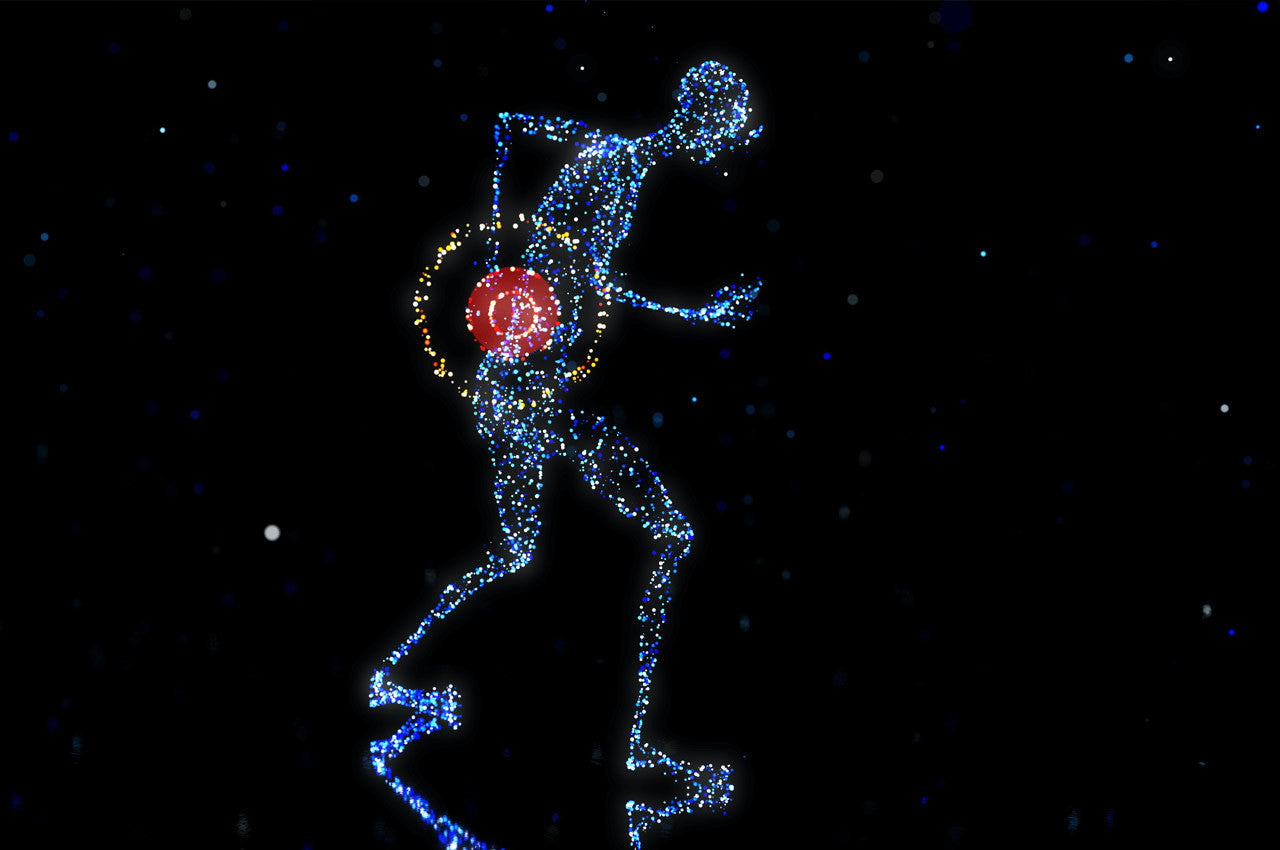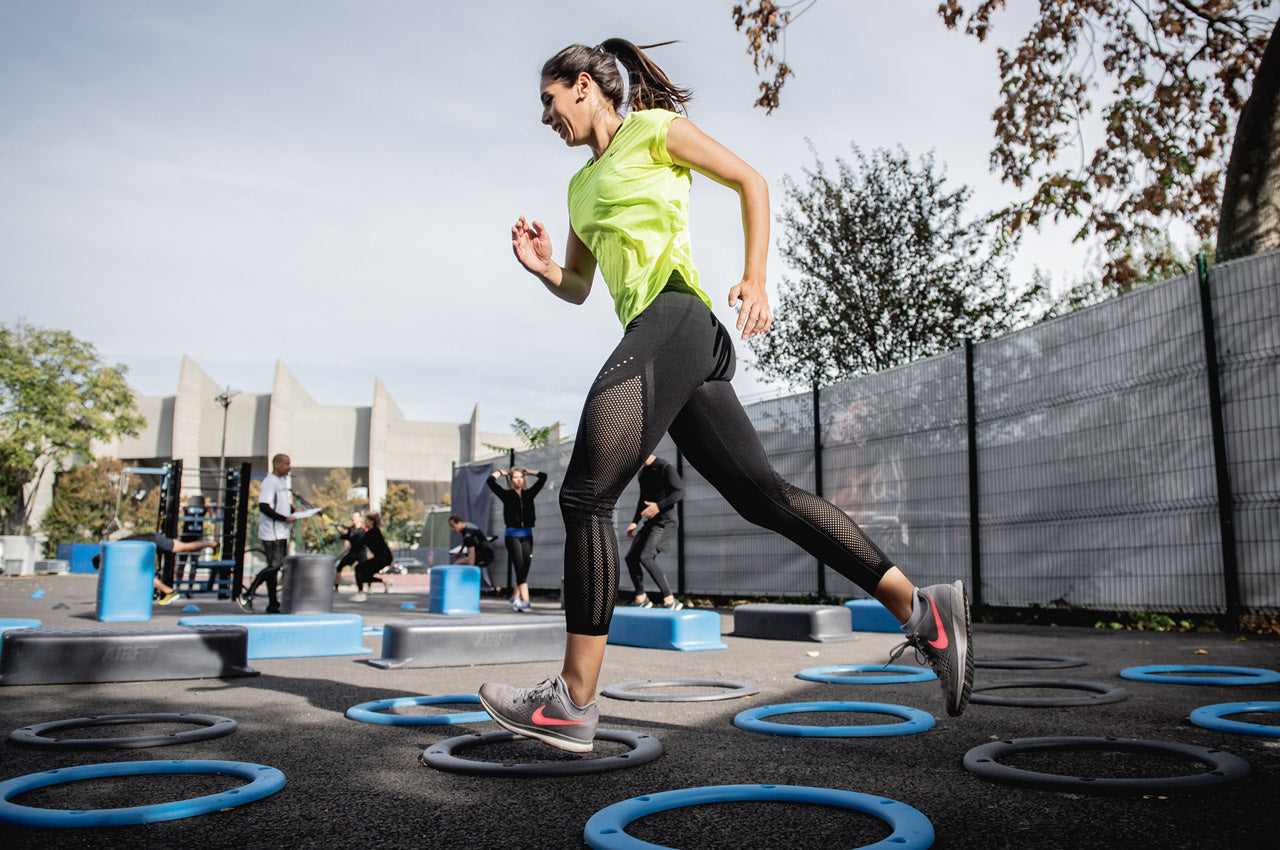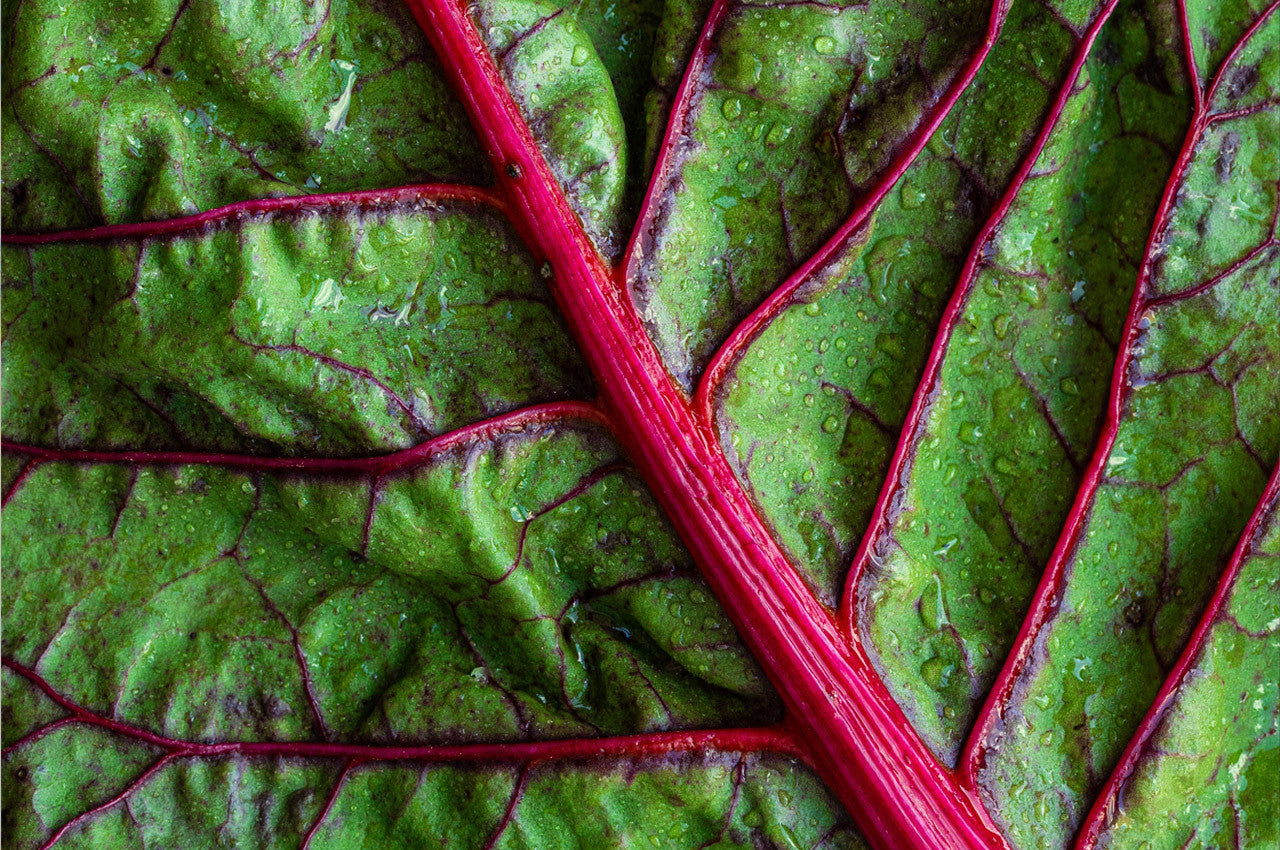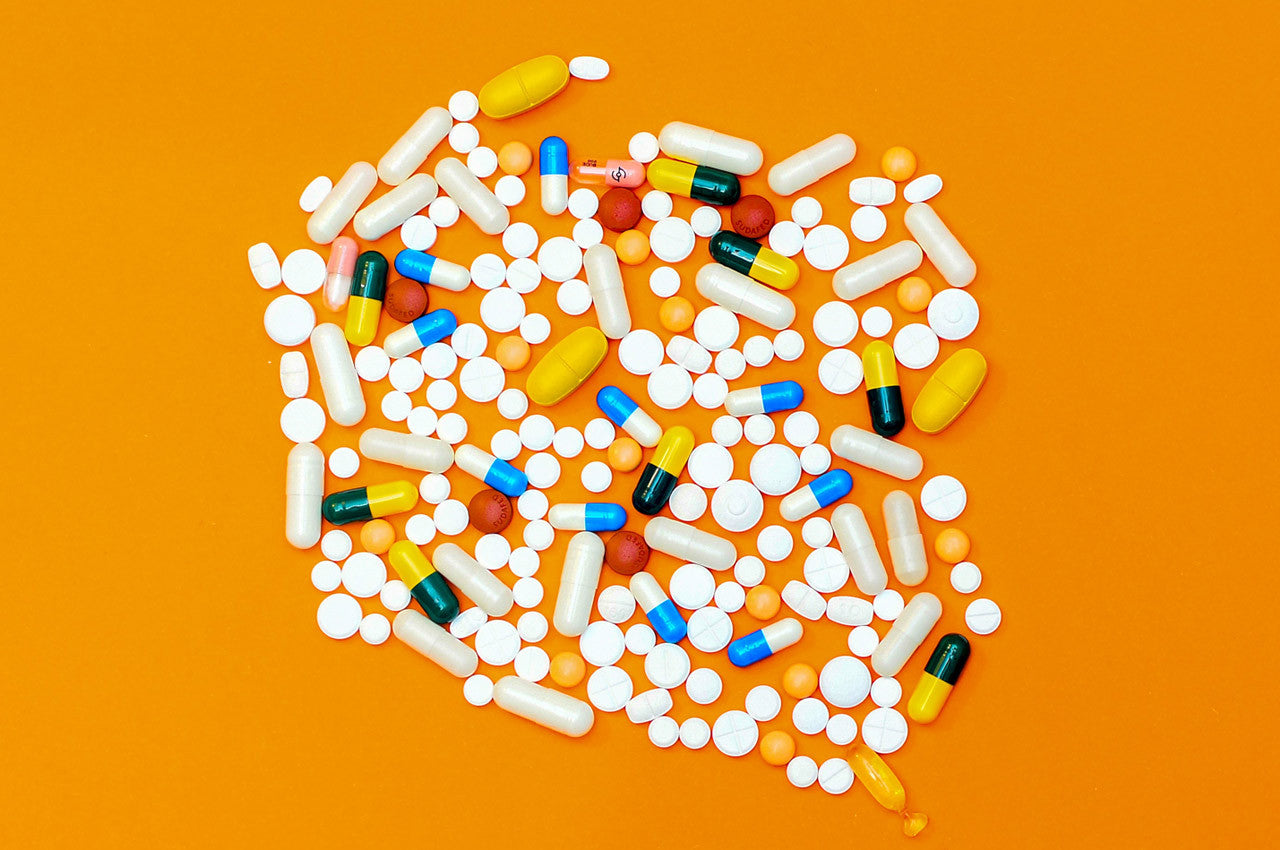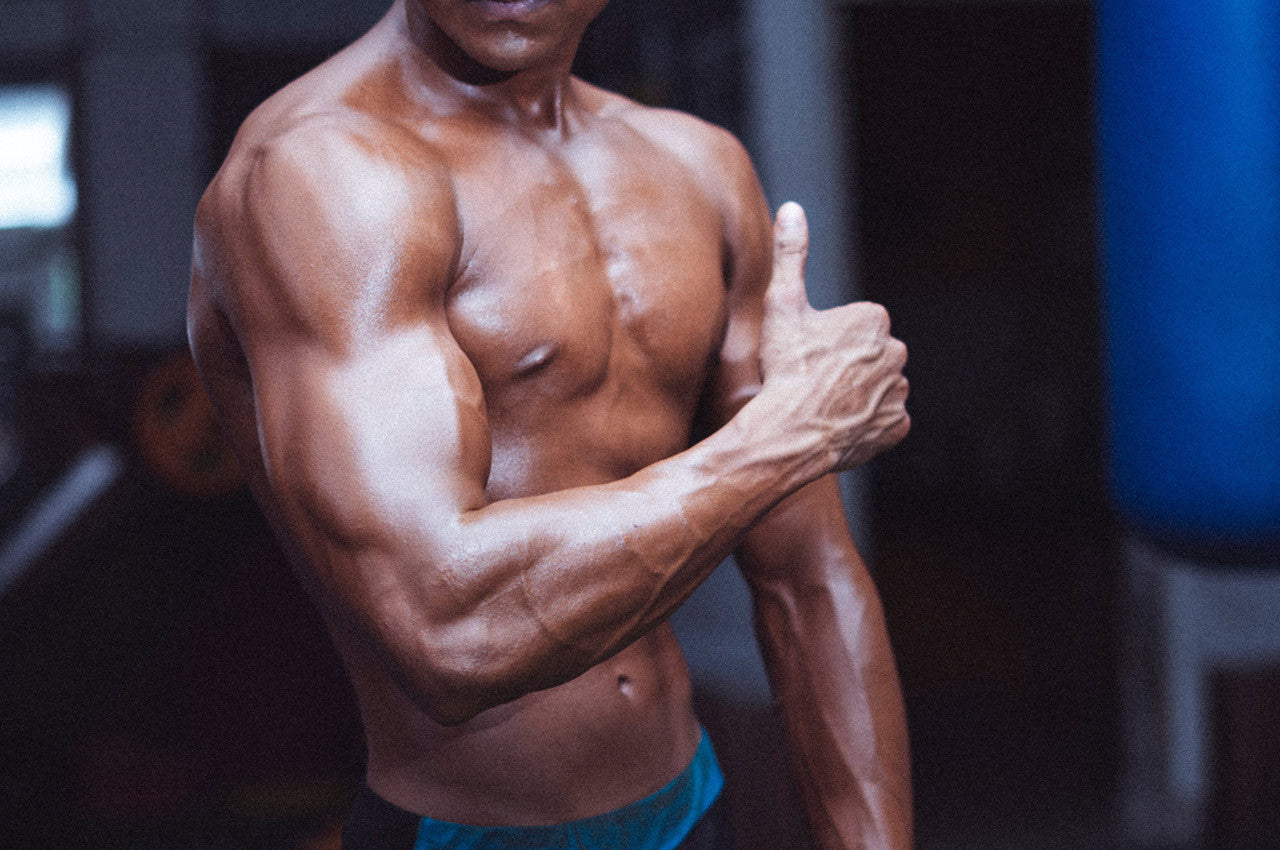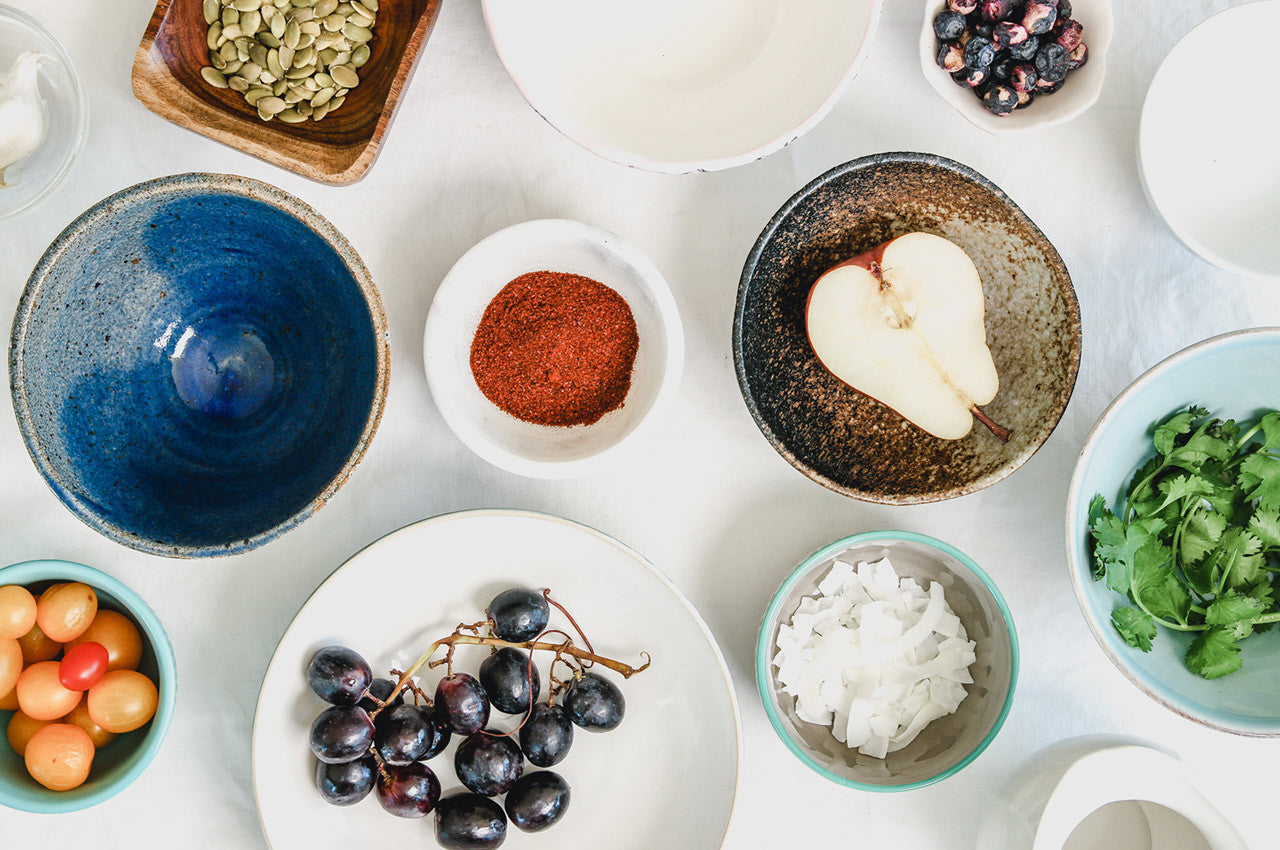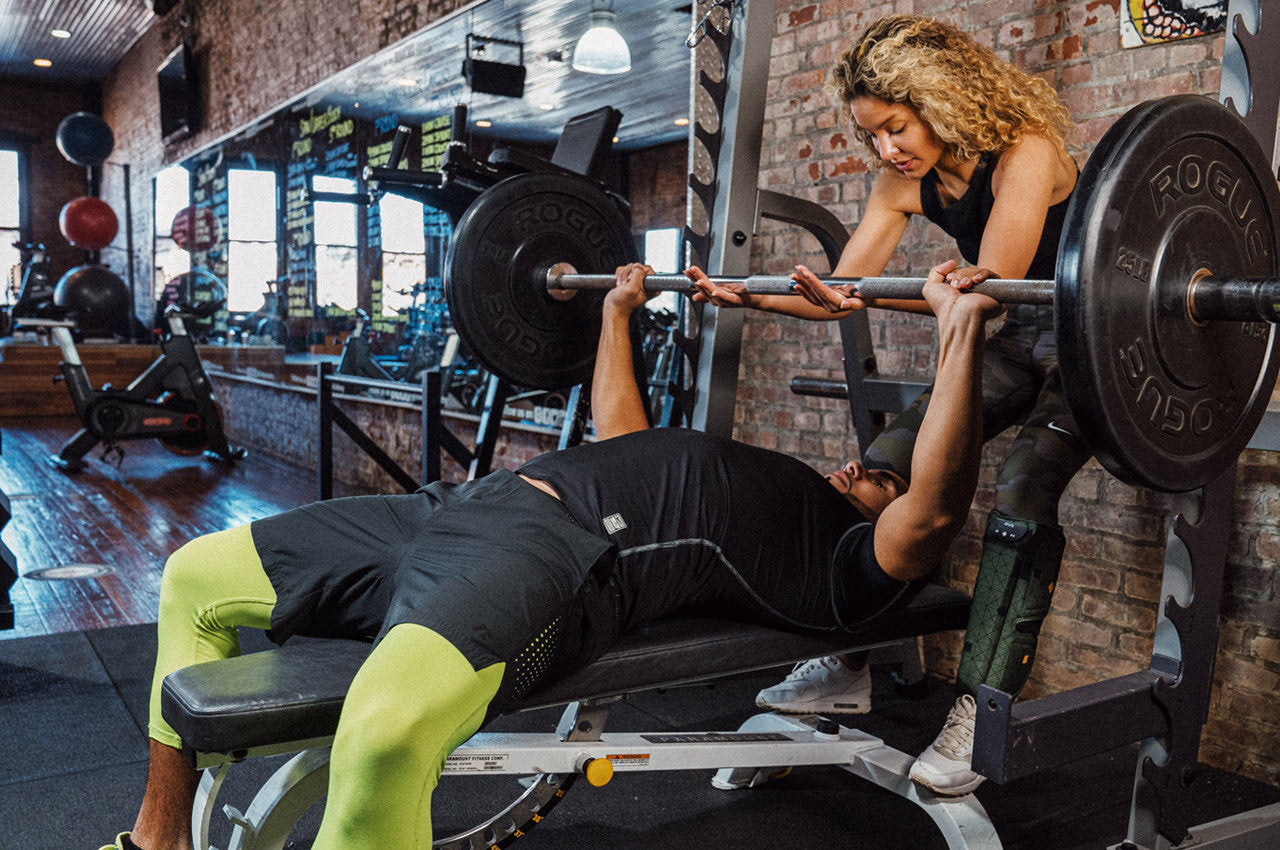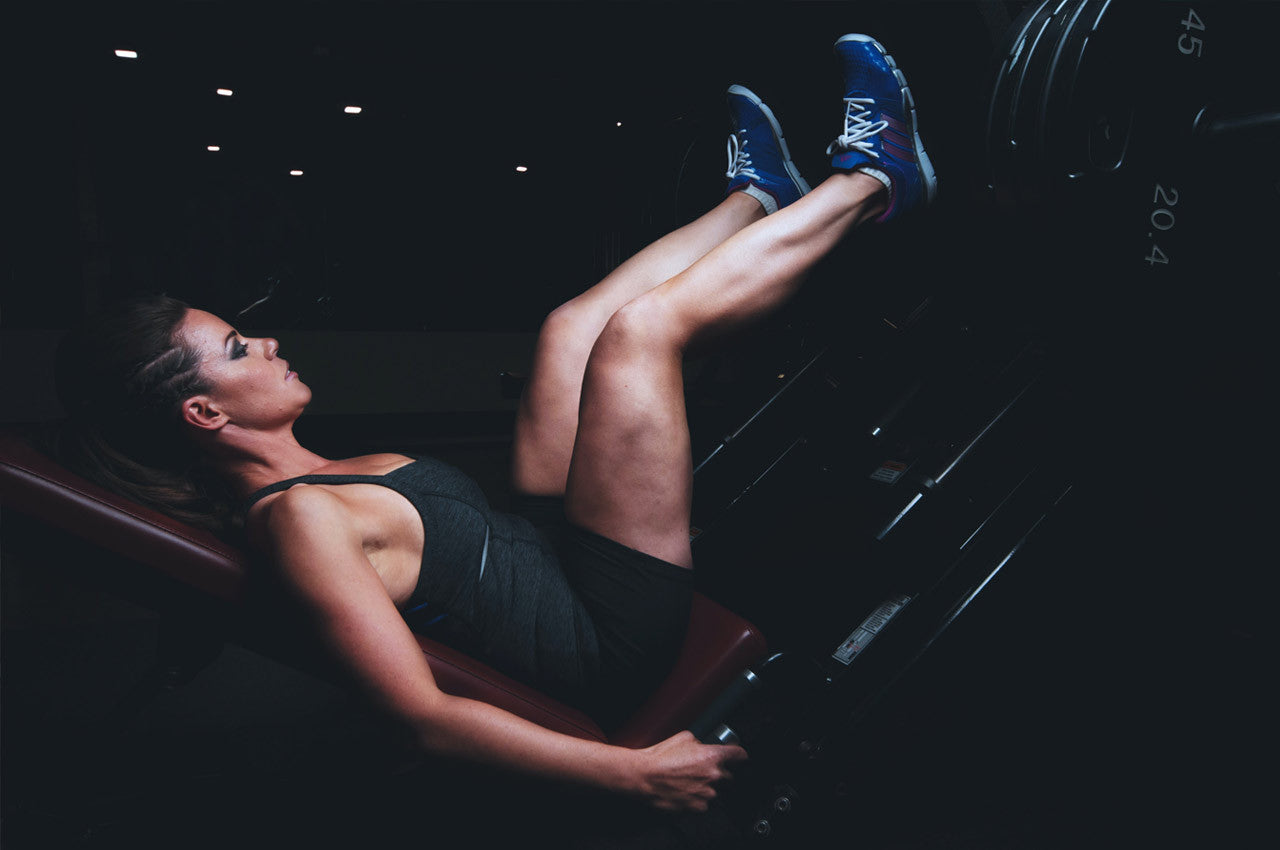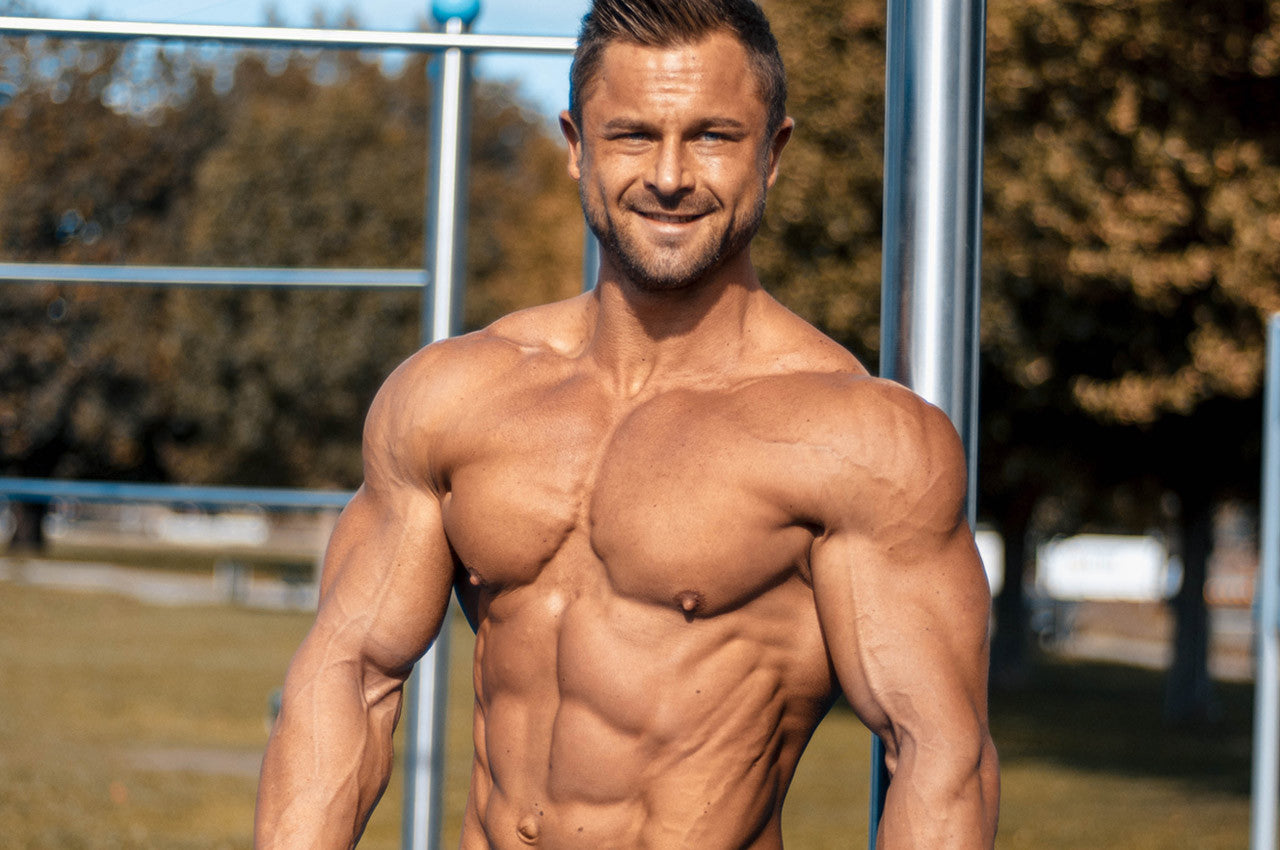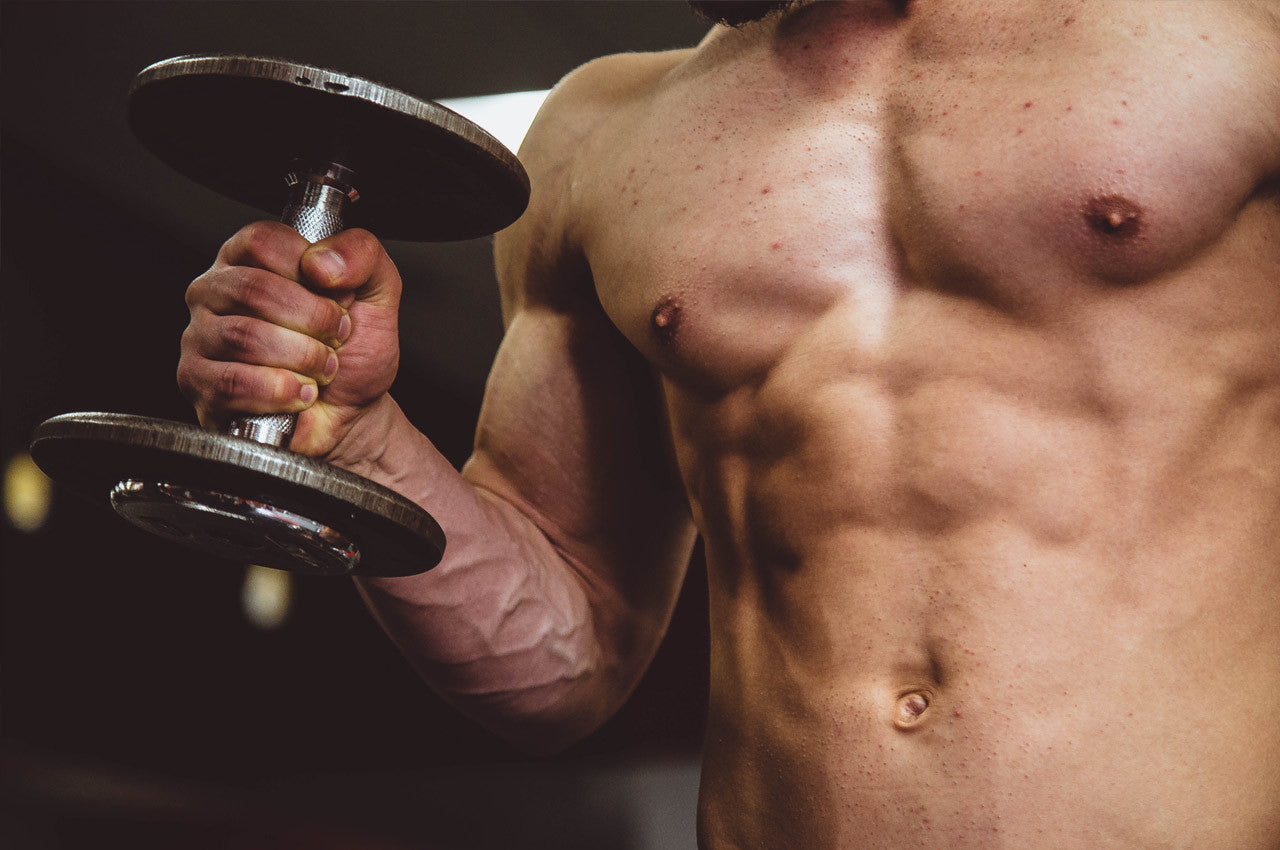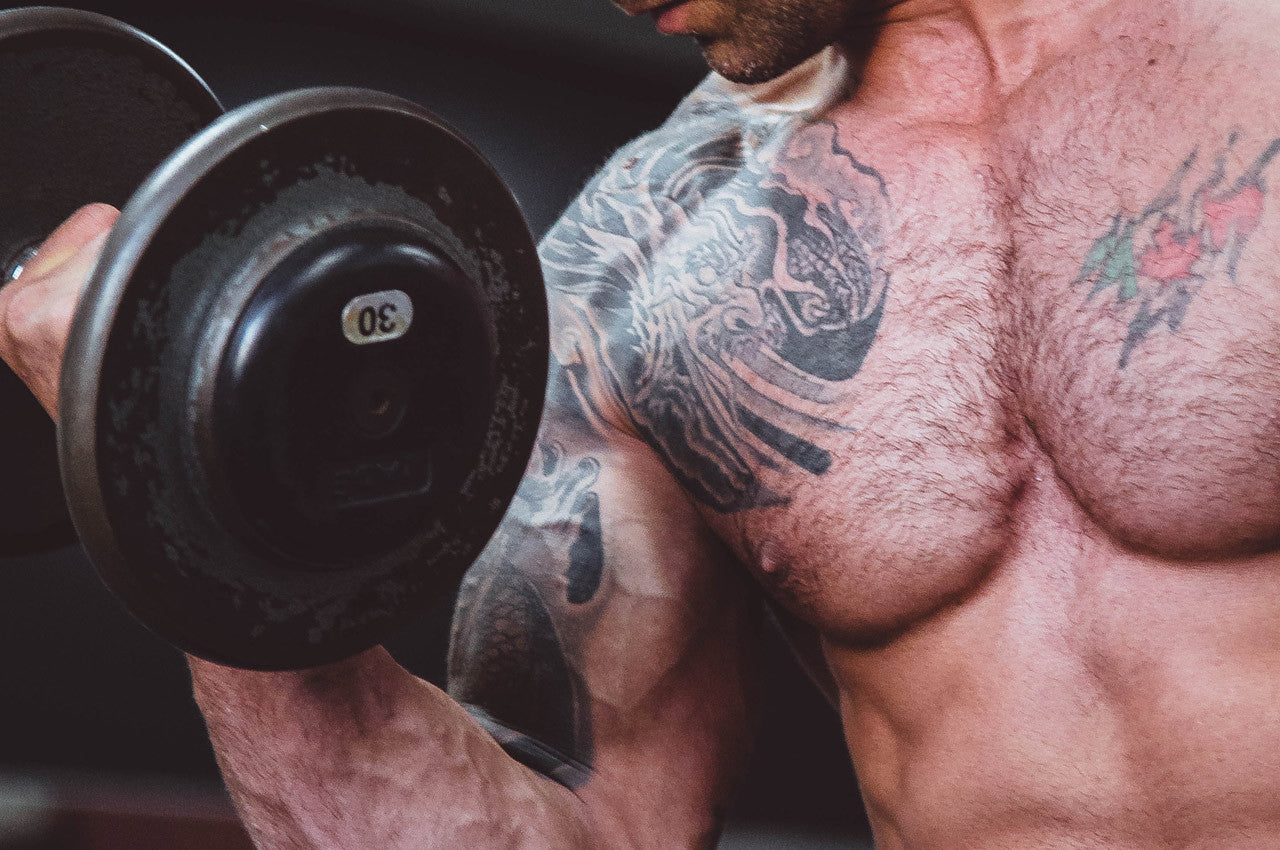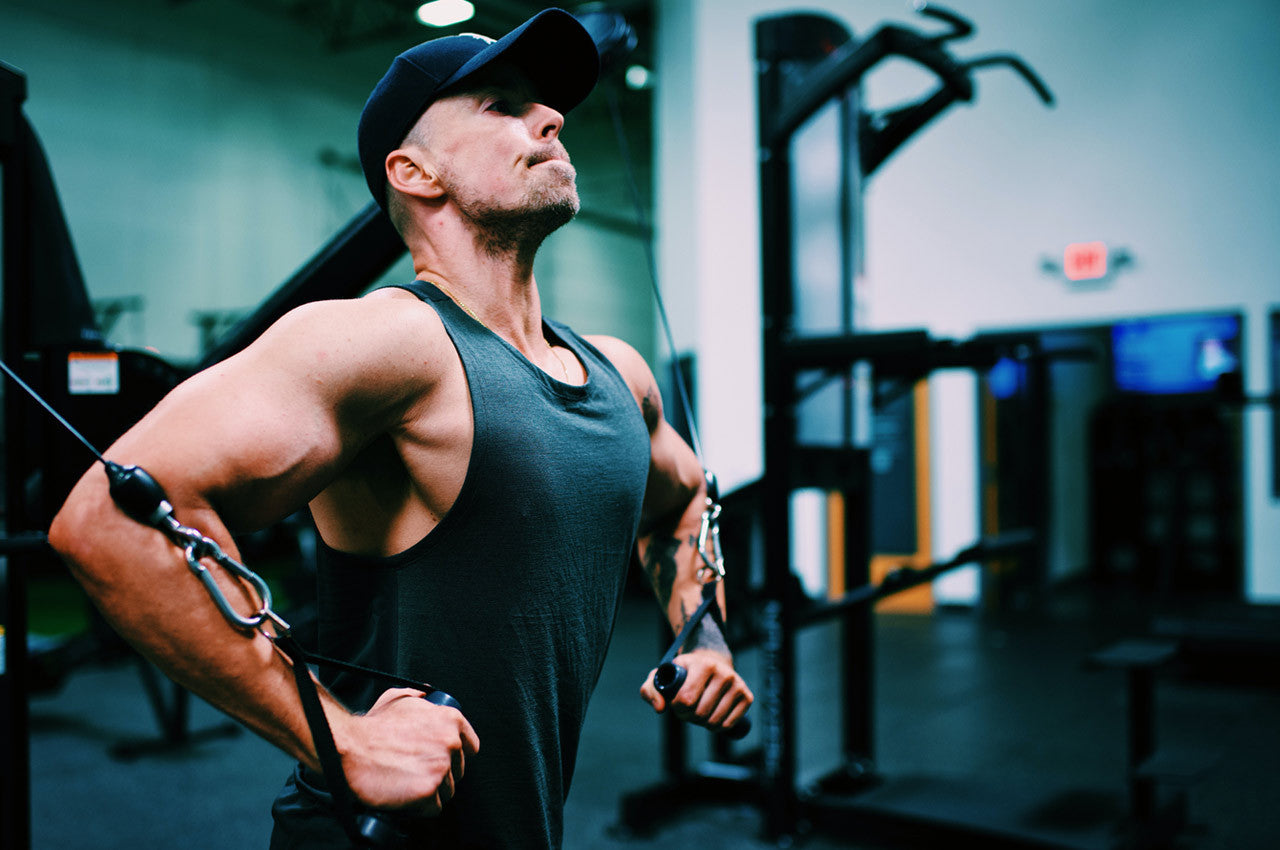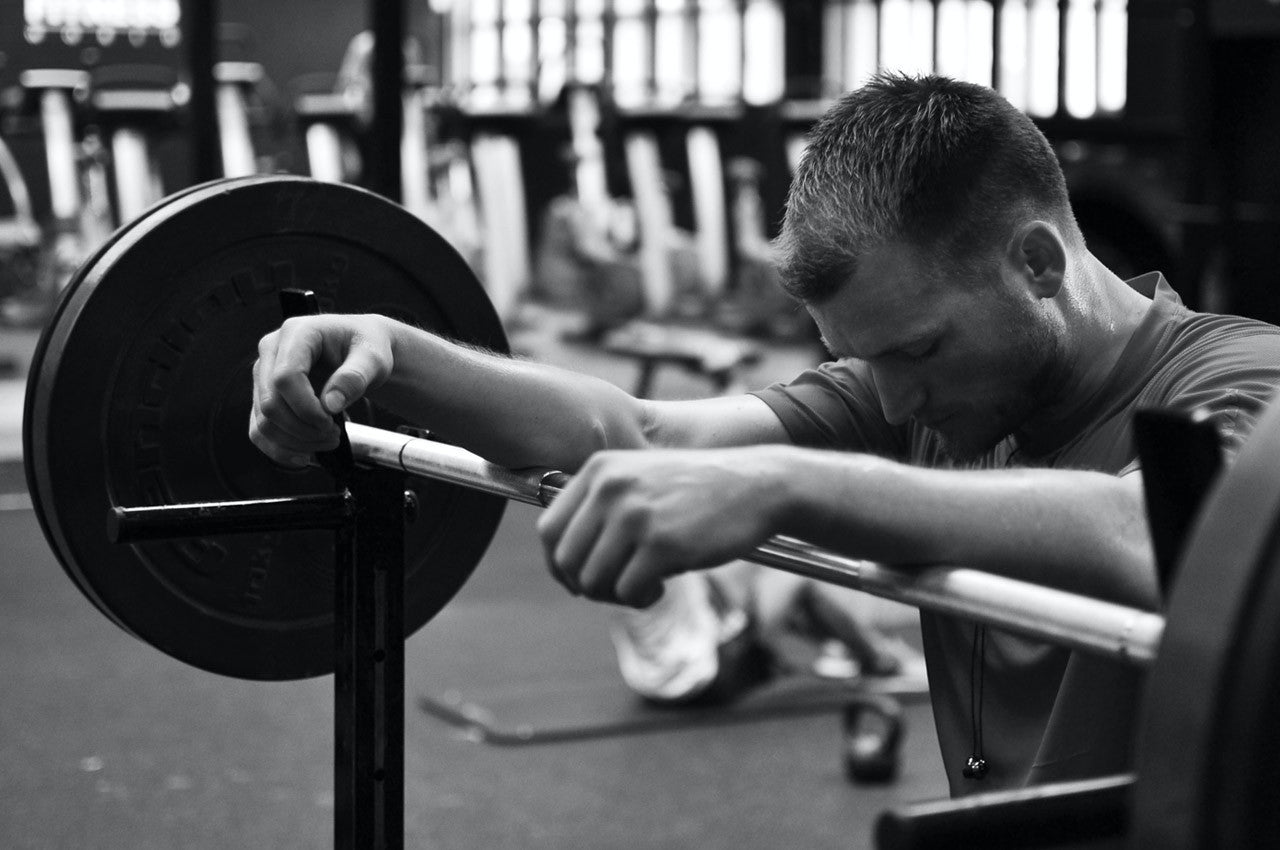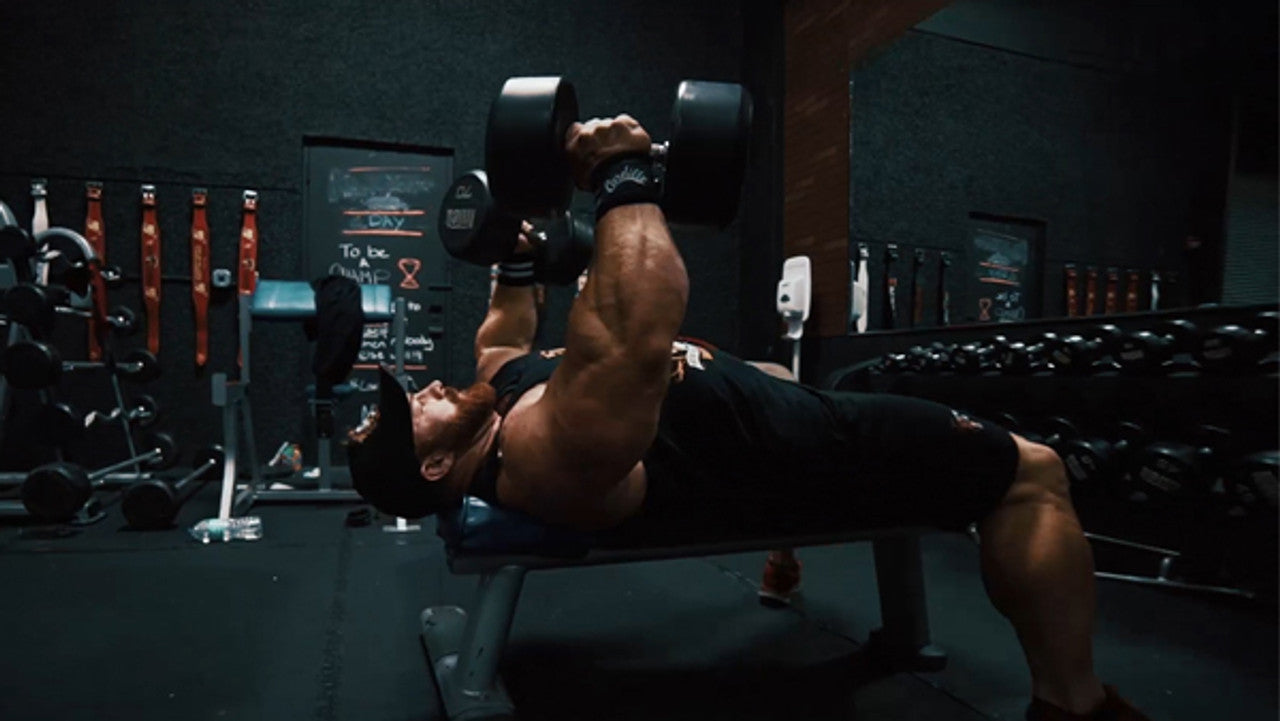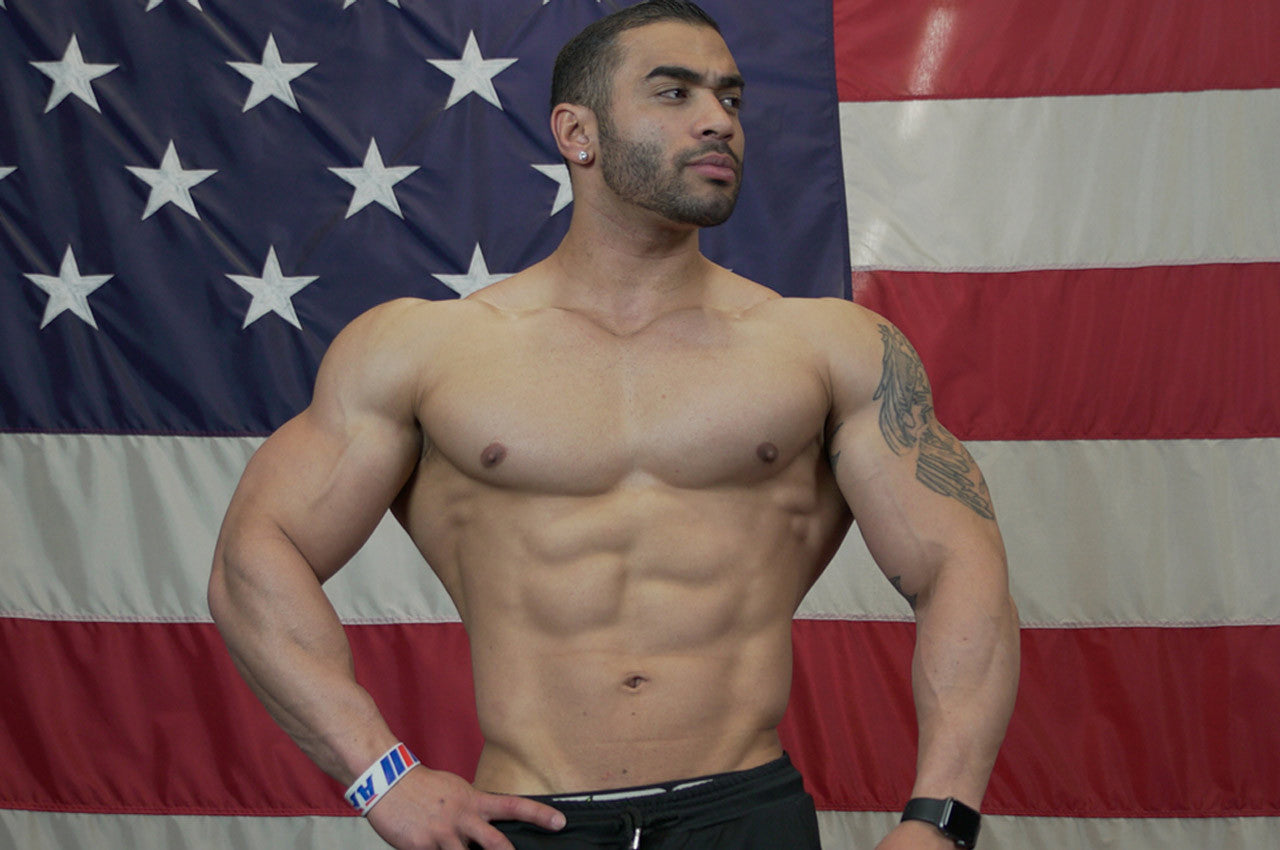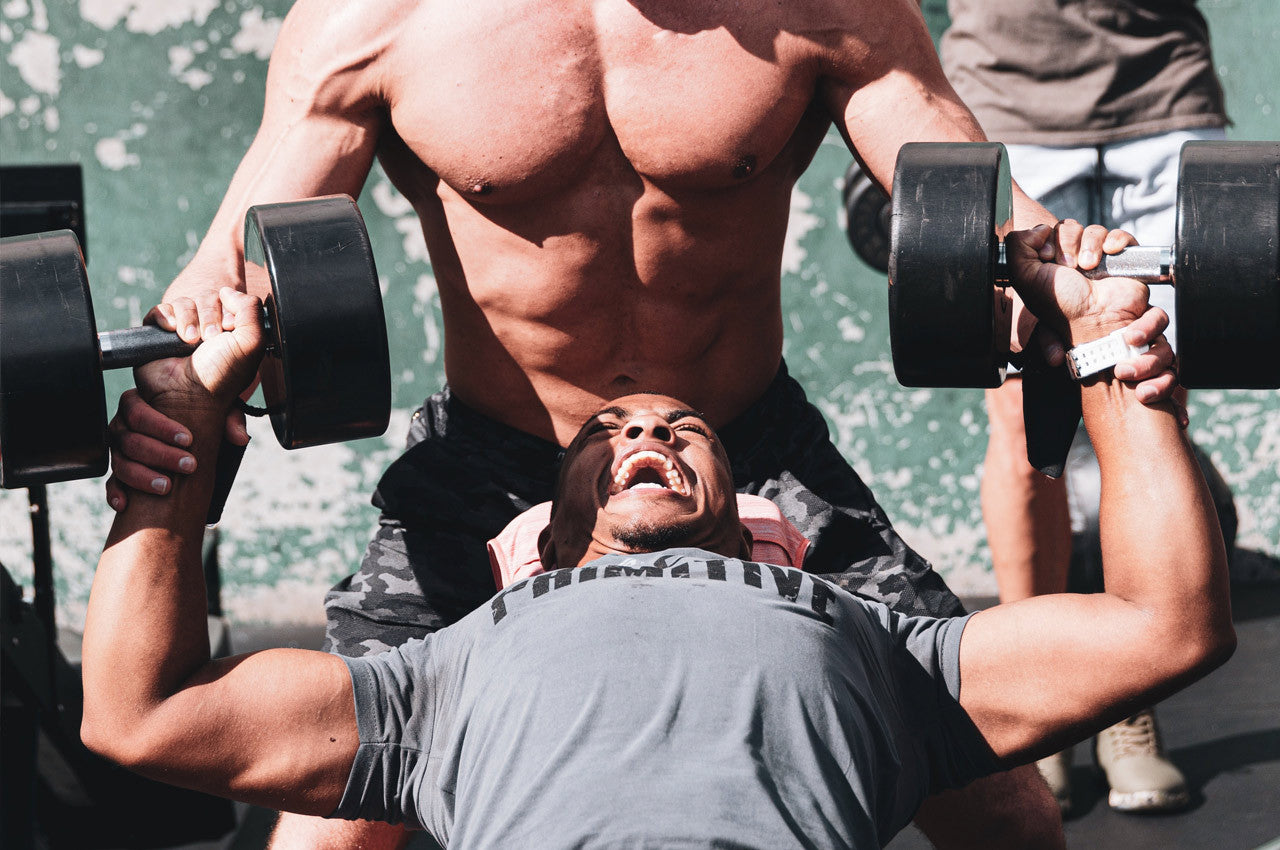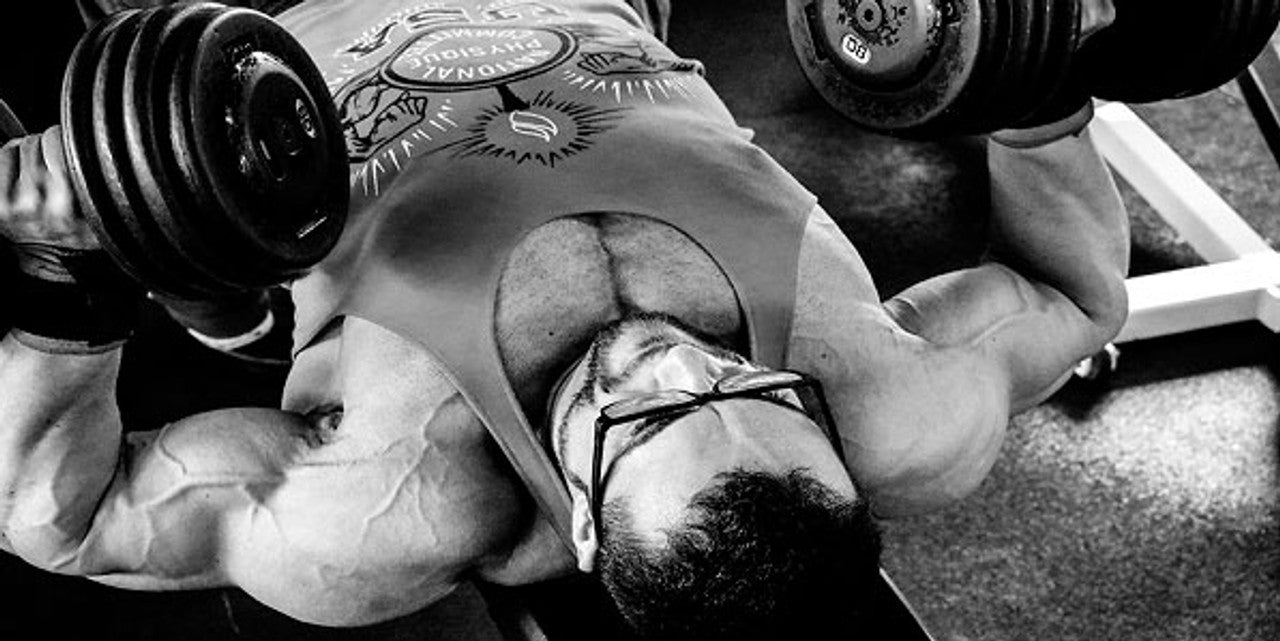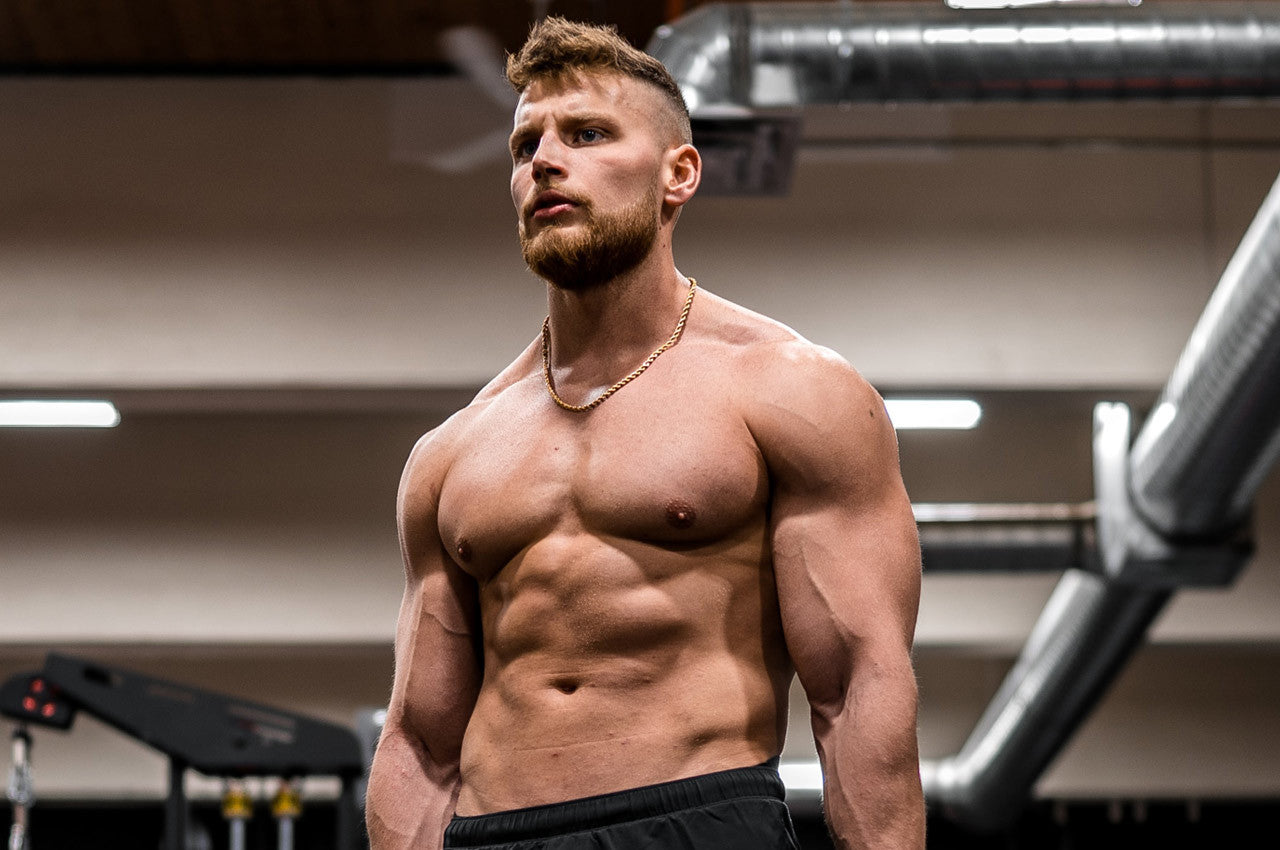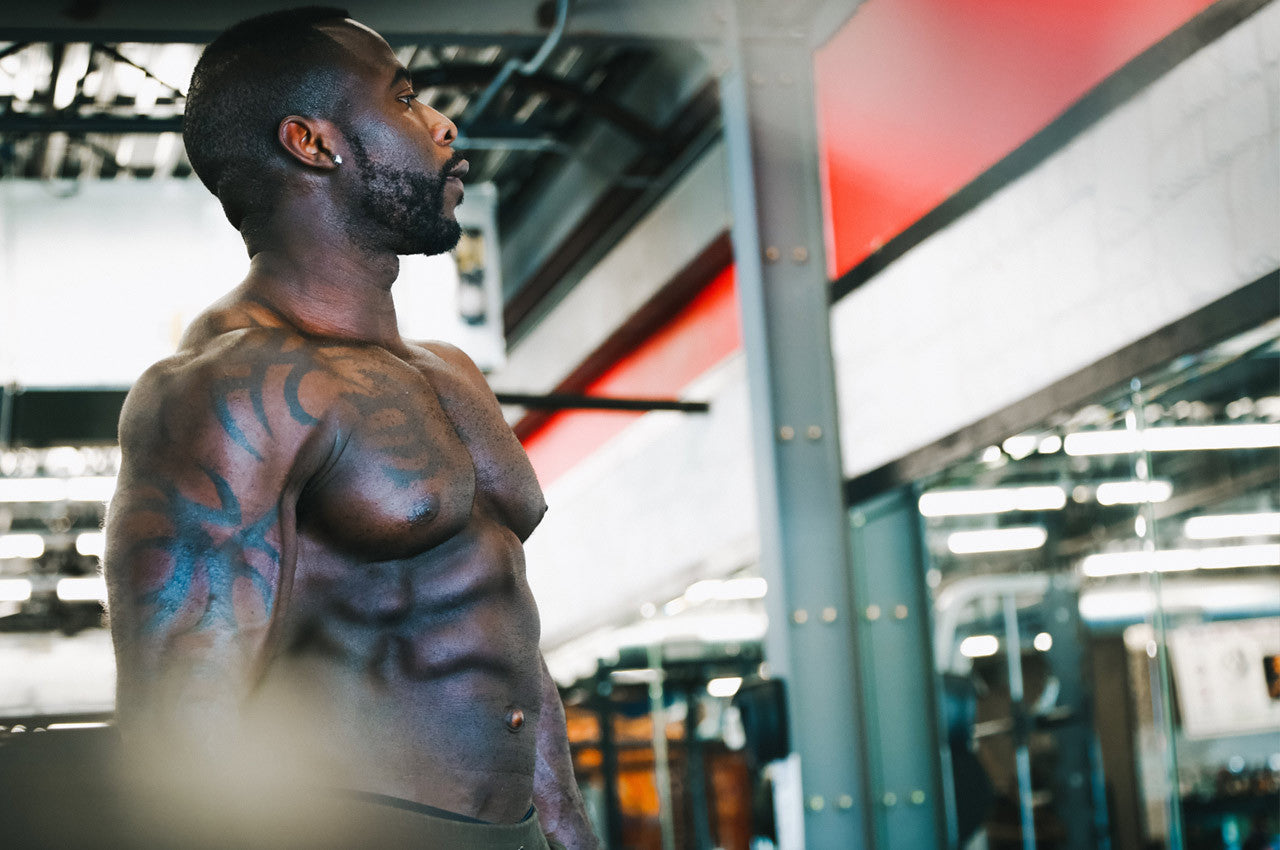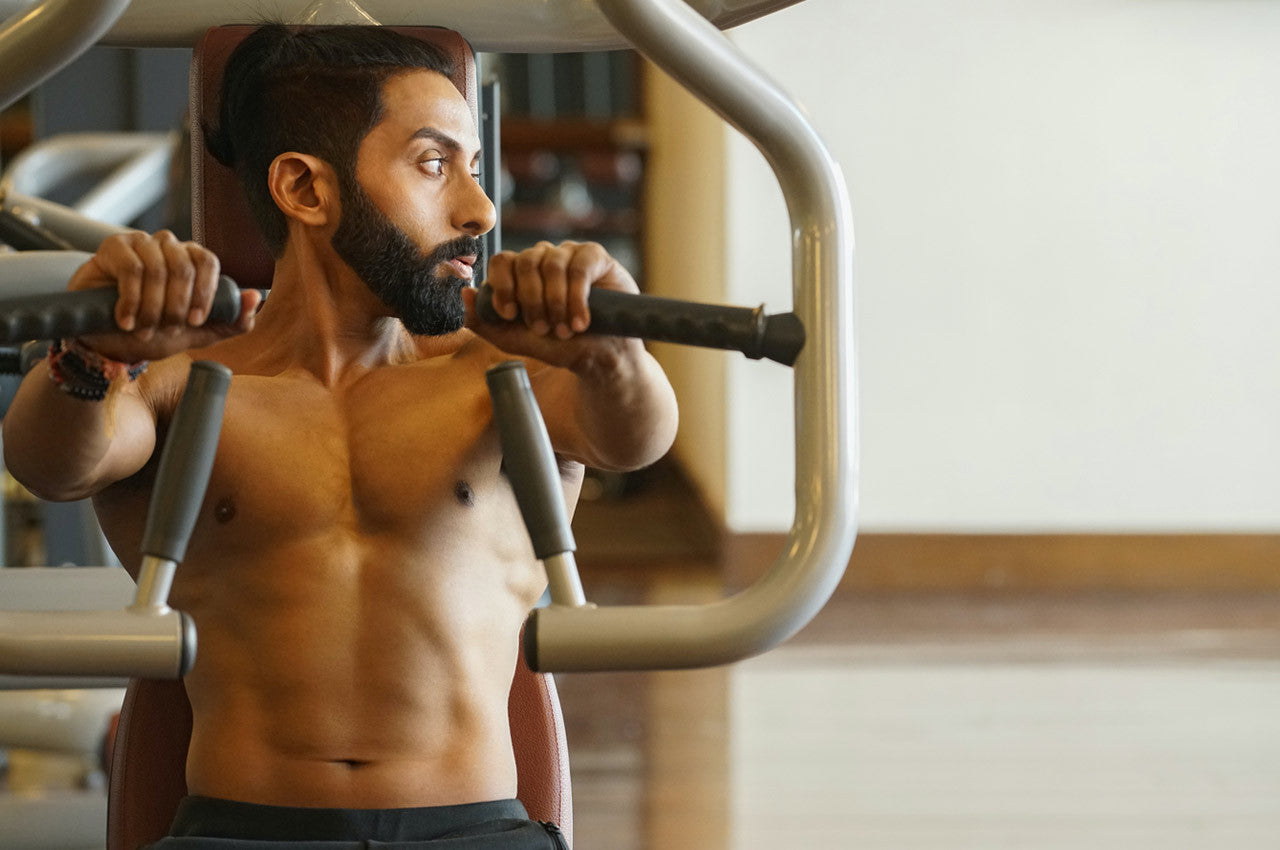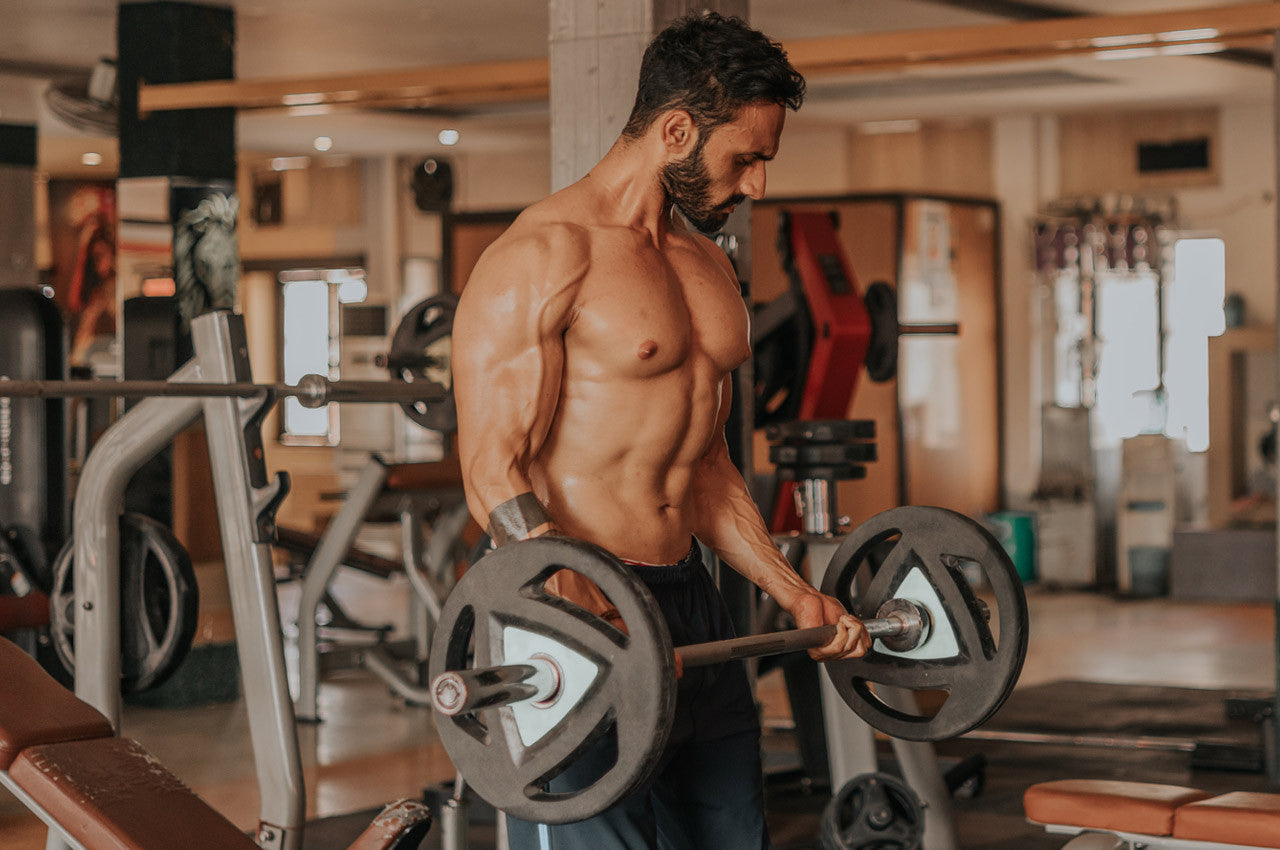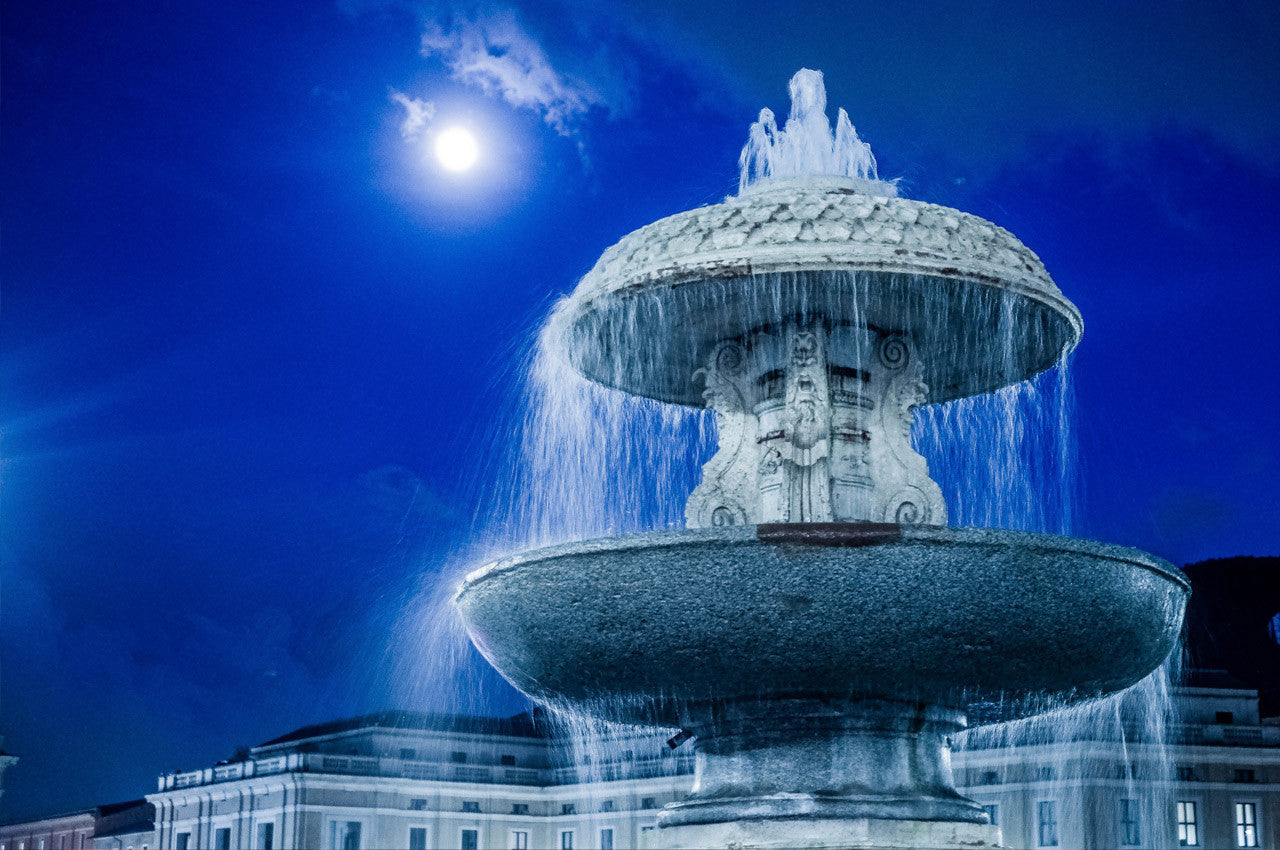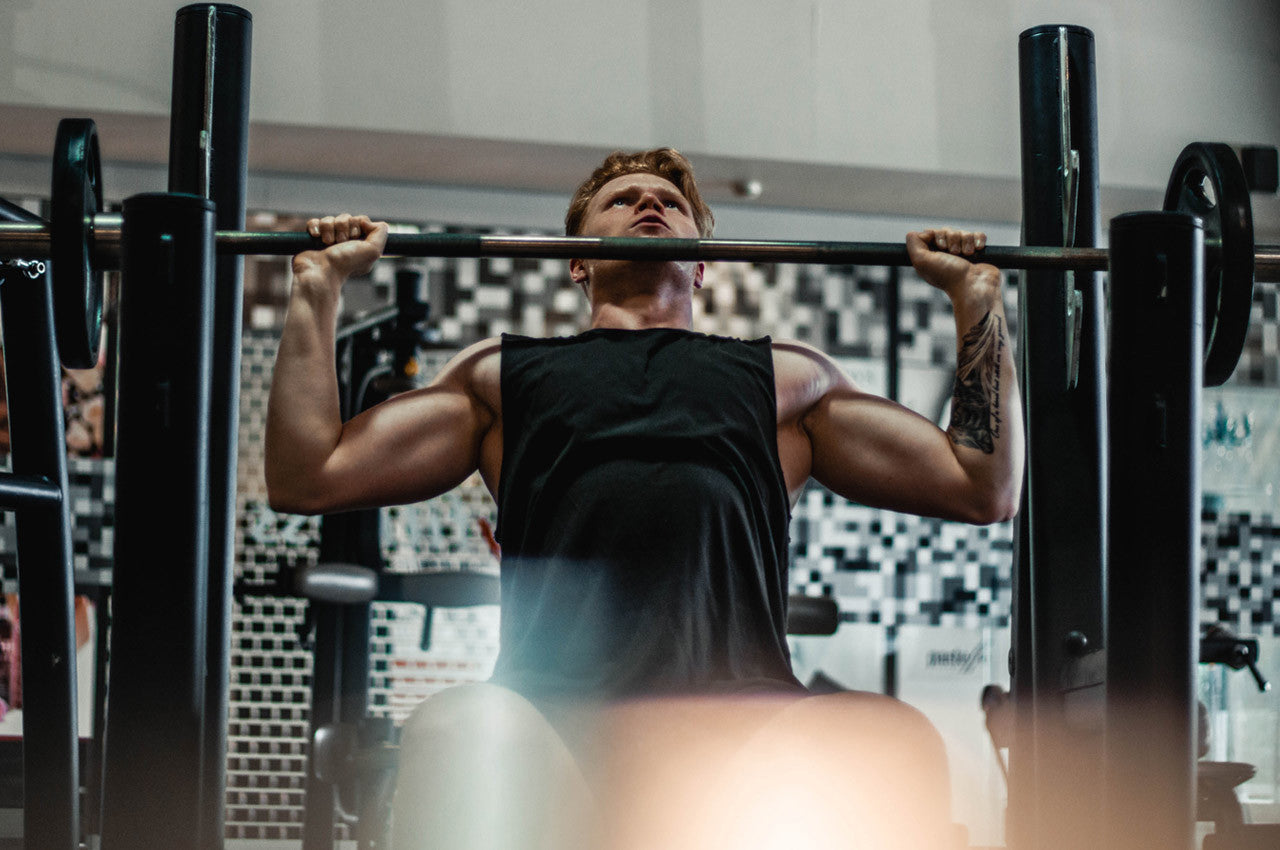
Testosterone is the quintessential male hormone. When you hear testosterone, you can’t help but think of a hulking beast of an alpha male. You know the type -- leader of the pack, star quarterback, champion bodybuilder. These guys are coursing with testosterone, there’s no question about it.
Adequate levels of this essential anabolic hormone are necessary to stimulate sexual desire, boost libido, heighten sexual arousal and ensure sexual satisfaction and pleasure for both men and women. But the functions of testosterone extend beyond just your sex life (though that’s incredibly important), it’s also involved in regulating and maintaining:
• Optimal production of red blood cells
• Body composition
• Lean muscle mass
• Sleep patterns
• Energy levels
• Overall mood
• Bone density
• Response to pain
As you can see, testosterone is really, REALLY important to just about everything in your day to day life, but not everyone is fortunate enough to have the raging testosterone levels of an 18 year old. A lot of men are plagued by low testosterone, negatively impacting their sex life and overall quality of life.
But, why are some men affected by low testosterone, while others seemingly aren’t?
Causes of Low Testosterone
The leading cause of declining testosterone levels is age. Beginning around age 30, men lose about 1% of their natural testosterone per year continuously until they die. That means, that if everything else is perfect in your life -- diet, exercise, stress, sleep -- you’re still going to face an uphill battle in your quest to maintain peak testosterone levels as the years go by. In fact, it’s estimated that around 40% of men over the age of 45 suffer from low testosterone.[1]Aside from age, there’s several other factors that can blunt natural testosterone production, including:
• Low Vitamin D levels
• Poor nutrition (i.e. eating too low fat)
• Chronic stress
• Excess weight
• Imbalanced microflora (gut bacteria)
• Sedentary lifestyle (i.e. not exercising)
• Prescription drugs (including statins)
• Genetics
But, there’s some help on the way in the form of natural testosterone boosters -- all natural supplements that can increase your testosterone levels. Natural testosterone boosters work by enhancing testosterone production, or related hormones that significantly impact your natural testosterone production, such as luteinizing hormone (LH). Still some other ingredients work by preventing testosterone from converting into estrogen.
The best part is, many of these ingredients have actual human research backing their efficacy. So, without further adieu, let’s take a look at the best natural testosterone boosters that can help you reclaim your manhood!
Best Natural Testosterone Boosters
Vitamin D
Also known as the “sunshine vitamin”, vitamin D is an essential fat-soluble vitamin that plays a key role in the production of natural testosterone. When exposed to direct sunlight, converted to a prehormone in the liver, and an active hormone in the kidneys where it then goes onto perform a number of functions, including testosterone production.
Unfortunately many men (and women) are chronically deficient in vitamin D, due to a mix of working, playing, or watching tv indoors and neglecting the outdoors completely. Low Vitamin D levels are associated with decreased free testosterone and increased estrogen levels and body fat.[2]
But the troubles of D deficiency don’t end there. Lacking vitamin D also has been linked to reduced lean muscle mass, lower fertility, higher rates of depression, and an increased risk of cardiovascular disease.
Fortunately there’s hope when you supplement with Vitamin D (specifically the highly bioactive D3 form of vitamin D). Research has shown that supplementing with 5,000IU Vitamin D per serving can increase testosterone levels by as much as 20%![3]
A final benefit of maintaining sufficient vitamin D levels is that it also supports aromatase inhibition, providing a more indirect way for increasing testosterone production.[4] FYI, aromatase is the enzyme that converts testosterone into estrogen. Reduced aromatase activity, means more of your precious testosterone is spared and left to circulate and do its job, rather than become fat-promoting estrogen.
Boron
Boron that’s vital for proper bone formation and growth as well as wound healing. It also happens to be a prime supporting player in the production of testosterone as well. One impactful study in humans gave men 10 mgs of boron every morning and found that the supplemental boron:
• Increased free testosterone levels by 28%[5]
• Decreased free estrogen levels by ~39%[5]
• Increased dihydrotestosterone (DHT) levels by 10%[5]
• Significantly reduced inflammatory biomarkers (hsCRP and TNF-a)[5]
Here’s the really interesting part, these beneficial increases in hormone levels occurred after only 7 days of supplementation![5] Additional research confirms the findings that supplementing with boron does indeed boost testosterone production in men.[6,7]
Another essential mineral, zinc, and frequently encountered in sleep aids as part of a ZMA formula. Scientific research has established a clear link between this vital mineral and testosterone. Unfortunately, much like our previous two natural testosterone boosters, many men (particularly athletes) are chronically deficient in zinc, setting them up for a host of trouble including reduced testosterone production, decreased immune function, and poorer overall health. This is due to the fact that zinc serves countless functions in the body and lacking in it leads to a host of complications (including decreased libido!).[8]
Zinc also plays an important role in building slabs of lean muscle as it enhances IGF-1 (insulin-like growth factor-1), a hormone key to proper recovery and growth.[9] The bottom line is that optimal testosterone production begins with a solid foundation of essential vitamins and minerals, and if you’re missing out on any of these key players (Vitamin D, Zinc, Boron, etc.), all of the other natural testosterone boosters won’t do a lick of good. Get your basics taken care of and build out from there!
Ashwagandha (KSM-66/Sensoril)
A staple of Ayurveda, Ashwagandha is an incredibly well known adaptogen, used around the world for its stress-relieving qualities. Supplementing with the humble herb improves your ability to react and deal with all manner of physical, emotional, and psychological stress. It’s been proven effective for men and women, but the benefits of ashwagandha extend beyond stress-relief.[13]
Numerous human studies have found that ashwagandha can increase testosterone levels as well as increase other important anabolic hormones, including Luteinizing Hormone (LH).[10] It also helps lower levels of Follicle Stimulating Hormone (FSH), thereby improving semen quality in men. On top of all of that, ashwagandha also improves exercise performance and recovery from exercise, and it even enhances memory and cognition.[11,12]
Ashwagandha is about as proven of a commodity as they come in the world of natural testosterone boosters.
Fenugreek
Another staple of traditional medicine, fenugreek (Trigonella foenum-graecum) is an annual plant that’s useful for combating inflammation in the body, but it’s also a valuable natural testosterone booster and body composition supplement.
Clinical studies in resistance-trained men have shown that fenugreek supplementation[14,15]:
• Decreased body fat
• Increased libido
• Enhanced anabolic activity
• Boosted creatine uptake by skeletal muscles
• INCREASED testosterone levels
Supplementing with fenugreek also helps regulate aromatase levels, which keeps the critical estrogen-testosterone balance in favor testosterone to fuel muscle growth, libido, and fat loss.[16,17]
Indole-3-Carbinol / Diindolylmethane (DIM)
These two ingredients are really one in the same and they’re both found in cruciferous vegetables, including broccoli, cauliflower, and cabbage.Indole-3-Carbinol (I3C) is the parent compound containing diindolylmethane (DIM), the primary active metabolite that blocks estrogen formation and reduces aromatase activity. You’ll get the same results from supplementing with either one, but diindolylmethane basically provides a more direct means to your end goal -- reduced estrogenic activity and more free testosterone!
Diindolylmethane functions in several ways, but the important part for you to takeaway is that it lowers “bad” estrogen levels and promotes more of the “good” kind, such as 2-hydroxyestrone.[18,19,20]
Forskolin is quite possibly the most popular, effective, and stimulant free fat burning and body recomposition supplement out there. Used prevalently in Ayurvedic medicine, forskolin is the active compound in the herb Coleus Forskohlii.
Forskolin primarily works by increasing cAMP (cyclic adenosine monophosphate), an incredibly powerful cell-signaling molecule that affects multiple things in the body including:
• Lipolysis (release of stored fatty acids) • Metabolic rate • Muscle protein synthesis (Muscle building) • Testosterone production
Best of all, forskolin is non-hormonal, meaning it doesn’t impact hormone levels, or require PCT, whatsoever!
The benefits of forskolin supplementation[21,22,23]?
• Stimulates anabolic and anti-catabolic effects
• Increases basal metabolic rate (BMR)
• Promotes lean body mass
• Aids fat burning
• Boosts testosterone levels
Longjack
Longjack goes by many names -- Tongkat Ali, Eurycoma longifolia, and Malaysian Ginseng to name a few. This fundamental component of Traditional Medicine has a long history of use for enhancing male virility and sexual prowess. That’s a big reason why it is commonly seen in natural testosterone boosters these days.
The main reason to supplement with Longjack is for its ability to significantly increase free testosterone levels, total testosterone levels, and force production![24] It also helps reduce estrogenic activity in the body as well as cortisol levels (an incredibly catabolic hormone),[25,26] thus providing a multi-tiered approach to superior testosterone production, muscle growth, and ideal body composition!
Shilajit
Shilajit is an Ayurvedic remedy standardized to 50% Fulvic Acid, that’s developed by Natreon, Inc. Fulvic acid has received a great deal of attention as a bioavailability enhancer of compounds its packaged with, especially furosemide.[27]
But more important to your testosterone levels, shilajit has been documented to boost testosterone secretion and stimulation.[28] But that’s not all, shilajit also makes your muscle’s more pliable and helps them repair and recover faster from damage or stress (i.e. exercise).[29]
Tribulus Terrestris
Tribulus is another common natural testosterone boosters, and well-known in the world of Ayurveda, for its ability to increase male virility and vitality.[30] The plant is rich in saponins, and most of the higher quality tribulus extracts on the market are standardized for certain percentages (ex. 90%) steroidal saponins.
Research has shown that tribulus may increase insulin-like growth factor 1 (IGF-1) and testosterone, and it may also help improve lean body mass and reduce body fat![31,32] There’s a lot of debate around whether tribulus is a certifiable “booster” of natural testosterone, but that may come down to some studies not using a high enough quality extract?
Stinging Nettle (Urtica Dioica)
Not encountered all as frequently as some of the previous compounds on this list, Stinging Nettle (Urtica Dioca) is a plant prized for its high lignan content. Lignans are polyphenols that can bind to sex hormone binding globulin (SHBG), a protein that binds to testosterone, rendering it inactive. Inhibiting this testosterone-robbing protein increases the amount of free testosterone in the body.[33,34]On top of that, singing nettle also inhibits dihydrotestosterone (DHT) from binding to various sites near the prostate, combatting benign prostatic hyperplasia (BHP).[35] And it also inhibits 5-alpha reductase (5AT) which supports more testosterone in the body.[36]
D-Aspartic Acid
D-Aspartic Acid (DAA) is a non-essential amino acid that plays a key role in the neuroendocrine system, where it stimulates release of several essential hormones involved in testosterone production including luteinizing hormone, follicle-stimulating hormone, and growth hormone.
Ratcheting up production of these pro-testosterone hormones leads to greater testosterone production. Human research has shown that when men were given 3g per day of d-aspartic acid for 12 days, on average, they experienced a 42% increase in testosterone production![37] Other studies have found that DAA is able to increase sperm count as well as lean mass and strength.[38,39]
Mucuna Pruriens (Velvet Bean)
Also known as Velvet Bean, Mucuna Pruriens is a medicinal plant renowned for its high L-Dopa content. In case you weren’t aware, L-Dopa is the precursor to dopamine (an important neurotransmitter) in the body, and suppelmenting with l-dopa can lead to heightened mood and improved sense of well-being.[40]
As for for what it can do for your piddling testosterone levels, L-Dopa inhibits prolactin release from the anterior pituitary, supporting liver and kidney function[41], and it increases testosterone, luteinizing hormone (LH) levels, and libido while also reducing cortisol.[42,43]
L-Carnitine L-Tartrate
Carnitine is a popular stimulant-free fat burning supplement due to the fact that carnitine is the naturally-occurring compound in the body that helps convert fat into usable energy. Unfortunately, most supplements use regular L-Carnitine, which isn’t all the useful for the average person, unless they’re really, really old or vegan/vegetarian, as carnitine is found in meat.
L-Carnitine L-Tartrate on the other hand is incredibly useful for a wide range of people, particularly athletes, and it’s been shown to improve recovery from exercise (by limiting damage incurred during training), and more importantly, enhances androgen receptor density and sperm motility.[44,45,46]
Basically L-Carnitine L-Tartrate makes your anabolic hormones (like testosterone) work more efficiently and effectively in the body!
Maca
Historically used by Peruvian natives as an aphrodisiac, maca is a plant commonly taken by men (especially bodybuilders) looking to reduce stress and boost testosterone. Several studies have documented that maca is extremely useful for increasing libido, sexual desire, and fertility.[47,48]
Regarding its stress-relieving properties, maca also serves as an adaptogen, which improves your ability to cope with stress of all kinds, and it may even benefit performance, memory, and learning.[49,50]
Safed Musli
Safed Musli (Chlorophytum Borivilianum) has long been used in Ancient Indian healing as a stress relief agent and aphrodisiac. Research has shown the age-old plant increases spermatogenesis (sperm production) and erectile strength, making it erectogenic![51,52] One animal study in particular documented a 28% increase in sperm count![51]Additional health benefits have been attributed to safed musli including increased lipid peroxidation and hepatic glutathione, a highly important antioxidant in the body.[53]
Spilanthes Acmella
Last up on the list is….you guessed it...another ancient Ayurvedic medicine!
This one is one of the newer kids on the block in terms of natural testosterone boosters. Spilanthes Acmella is a plant used both an analgesic (pain reliever) and aphrodisiac,[54] and early animal studies have shown it possibly contains some fairly impressive testosterone boosting benefits too!
Preliminary research notes that spilanthes increases levels of testosterone and luteinizing hormone in mice, after only 28 days of use.[54] That same study also documented significantly (p<0.05) elevated serum testosterone levels in subjects compared to the control group.
A couple of additional “fringe benefits” attributed to spilanthes acmella include increased nitric oxide levels and sexuality, both of which help your performance in the bedroom!
>Wrap Up
Testosterone is absolutely essential to your health and body composition. There’s a million and one supplements made specifically to boost testosterone naturally, without the use of injectable steroids, testosterone replacement therapy, or other illicit means that bring with them a host of health concerns.
Natural testosterone boosters can be effective when combined with intense exercise, proper diet, and ample sleep. But to get the most from them, make sure you’re doing all of the “common sense” things you should already be doing including:
• Eating right
• Training regularly
• Limiting stress
• Sleeping 7-9 hours each night
• Eliminating excess body fat
With higher testosterone levels, you’ll witness superior strength, power, and overall performance in the gym and the bedroom, not to mention the better mood, memory, and physique you’ll have too!
1. Dandona P, Rosenberg MT. A practical guide to male hypogonadism in the primary care setting. International Journal of Clinical Practice. 2010;64(6):682-696. doi:10.1111/j.1742-1241.2010.02355.x. 2. Lee DM, Tajar A, Pye SR, et al. Association of hypogonadism with vitamin D status: the European Male Ageing Study. Eur J Endocrinol. 2012;166(1):77-85. doi:10.1530/EJE-11-0743. 3. Pilz S, Frisch S, Koertke H, et al. Effect of vitamin D supplementation on testosterone levels in men. Horm Metab Res = Horm und Stoffwechselforsch = Horm Metab. 2011;43(3):223-225. doi:10.1055/s-0030-1269854. 4. Dahlquist DT, Dieter BP, Koehle MS. Plausible ergogenic effects of vitamin D on athletic performance and recovery. J Int Soc Sports Nutr. 2015;12(1):33. doi:10.1186/s12970-015-0093-8. 5. Naghii, M. et al. (2011). Comparative effects of daily and weekly boron supplementation on plasma steroid hormones and proinflammatory cytokines. Journal of trace elements in medicine and biology, 25(1): 54-58. 6. Naggii, M., & Samman, S. (1997). The effect of boron on plasma testosterone and plasma lipids in rats. Nutrition Research, 17(3): 523 – 531. 7. Pizzorno L. Nothing Boring About Boron. Integrative Medicine: A Clinician’s Journal. 2015;14(4):35-48. 8. Kylie, M., et. al. (2006). The effect of exhaustion exercise on thyroid hormones and testosterone of elite athletes receiving oral zinc. Neuro Endocrinology Letters. 27(1-2): 247-252 9. Rocha ED de M, de Brito NJN, Dantas MMG, Silva A de A, Almeida M das G, Brandao-Neto J. Effect of Zinc Supplementation on GH, IGF1, IGFBP3, OCN, and ALP in Non-Zinc-Deficient Children. J Am Coll Nutr. 2015;34(4):290-299. doi:10.1080/07315724.2014.929511. 10. Clinical Evaluation of the Spermatogenic Activity of the Root Extract of Ashwagandha (Withania somnifera) in Oligospermic Males: A Pilot Study Ambiye, V. R., Langade, D., Dongre, S., Aptikar, P., Kulkarni, M., & Dongre, A. (2013). Evidence-Based Complementary and Alternative Medicine, 2013. 11. Examining the effect of Withania somnifera supplementation on muscle strength and recovery: a randomized controlled trial Wankhede, S., Langade, D., Joshi, K., Sinha, S. R., & Bhattacharyya, S. (2015). Journal of the International Society of Sports Nutrition, 12(1), 43. 12. Efficacy and Safety of Ashwagandha (Withania somnifera (L.) Dunal) Root Extract in Improving Memory and Cognitive Functions Choudhary, D., Bhattacharyya, S., & Bose, S. (2017). Journal of Dietary Supplements, 1-14. Chicago 13. Body Weight Management in Adults Under Chronic Stress Through Treatment With Ashwagandha Root Extract: A Double-Blind, Randomized, Placebo-Controlled Trial Choudhary, D., Bhattacharyya, S., & Joshi, K. (2017). Journal of evidence-based complementary & alternative medicine, 22(1), 96-106. 14. Poole C, Bushey B, Pena E, et al. Effects of TESTOSURGE supplementation on strength, body composition and hormonal profiles during an 8-week resistance training program. Journal of the International Society of Sports Nutrition. 2009;6(Suppl 1):P12. doi:10.1186/1550-2783-6-S1-P12. 15. Wankhede et. al., 2006 “Effect of Testofen on safety, anabolic activity and factors affecting exercise physiology.” 16. Steels, E., Rao, A. and Vitetta, L., 2011. Physiological Aspects of Standardized Trigonella foenum-graecum Extract and Mineral Formulation. Phytotherapy Research, Vol. 25, 1294–1300. 17. Effects of a Purported Aromatase and 5 a-Reductase Inhibitor on Hormone Profiles in College-Age Men Effects of a Purported Aromatase and 5 a-Reductase Inhibitor on Hormone Profiles in College-Age Men 18. Sanderson JT, Slobbe L, Lansbergen GW, Safe S, van den Berg M. 2,3,7,8-Tetrachlorodibenzo-p-dioxin and diindolylmethanes differentially induce cytochrome P450 1A1, 1B1, and 19 in H295R human adrenocortical carcinoma cells. Toxicol Sci. 2001;61(1):40-48. 19. Jellinck PH, Forkert PG, Riddick DS, Okey AB, Michnovicz JJ, Bradlow HL. Ah receptor binding properties of indole carbinols and induction of hepatic estradiol hydroxylation. Biochem Pharmacol. 1993;45(5):1129-1136. 20. Bradlow HL, Telang NT, Sepkovic DW, Osborne MP. 2-hydroxyestrone: the “good” estrogen. J Endocrinol. 1996;150 Suppl:S259-65. 21. Godard MP, Johnson BA, Richmond SR. (2005) Body composition and hormonal adaptations associated with forskolin consumption in overweight and obese men. Obes Res, 13(8):1335-43. 22. Burns, T. W., Langley, P. E., Terry, B. E., Bylund, D. B., & Forte, L. R. (1987). Comparative effects of forskolin and isoproterenol on the cyclic AMP content of human adipocytes. Life sciences, 40(2), 145-154. 23. Srivastava SK, Khatoon CS, Mehrotra SR (2002). Pharmacognostic evaluation of coleus forskohlii. Pharmaceutical Biology 40, 129-134. 24. Tambi, M. I., Imran, M. K. and Henkel, R. R. (2012), Standardised water-soluble extract of Eurycoma longifolia, Tongkat ali, as testosterone booster for managing men with late-onset hypogonadism?. Andrologia, 44: 226-230. doi:10.1111/j.1439-0272.2011.01168.x 25. Henkel, R. R., Wang, R., Bassett, S. H., Chen, T., Liu, N., Zhu, Y., & Tambi, M. I. (2014). Tongkat Ali as a potential herbal supplement for physically active male and female seniors—a pilot study. Phytotherapy Research, 28(4), 544-550. 26. Talbott SM, Talbott JA, George A, Pugh M. Effect of Tongkat Ali on stress hormones and psychological mood state in moderately stressed subjects. Journal of the International Society of Sports Nutrition. 2013;10:28. doi:10.1186/1550-2783-10-28. 27. uraj Prakash Agarwal, Mohammad Khalid Anwer, and Mohammad Aqil. Complexation of Furosemide with Fulvic Acid Extracted from Shilajit: A Novel Approach. Drug Development And Industrial Pharmacy Vol. 34 , Iss. 5,2008. 28. Pandit, S., Biswas, S., Jana, U., De, R. K., Mukhopadhyay, S. C. and Biswas, T. K. (2016), Clinical evaluation of purified Shilajit on testosterone levels in healthy volunteers. Andrologia, 48: 570–575. doi:10.1111/and.12482. 29. Das Amitava, Datta Soma, Rhea Brian, Sinha Mithun, Veeraragavan Muruganandam, Gordillo Gayle, and Roy Sashwati. The Human Skeletal Muscle Transcriptome in Response to Oral Shilajit Supplementation. Journal of Medicinal Food. July 2016, 19(7): 701-709. doi:10.1089/jmf.2016.0010. 30. Singh S, Nair V, Gupta YK; Evaluation of the aphrodisiac activity of Tribulus terrestris Linn. in sexually sluggish male albino rats. J Pharmacol Pharmacother. (2012) 31. Do J, et al; Effects and Mechanism of Action of a Tribulus terrestris Extract on Penile Erection. Korean J Urol. (2013) 32. Wilk M, Michalczyk M, Chycki J, et al. Endocrine Responses to Physical Training and Tribulus Terrestris Supplementation in Middle-Age Men. Cent Eur J Sport Sci Med. 2016;13(1):65-71. doi:10.18276/cej.2016.1-06. 33. Schottner, M., Gansser, D., & Spiteller, G. (1997). Lignans from the roots of Urtica dioica and their metabolites bind to human sex hormone binding globulin (SHBG). Planta Medica, 63(6): 529-532. 34. Nahata, A., & Dixit, V. (2012). Ameliorative effects of stinging nettle (Urtica dioica) on testosterone-induced prostatic hyperplasia in rats. Andrologia, 44(1): 396-409. 35. Carson, C., & Rittmaster, R. (2003). The role of dihydrotestosterone in benign prostatic hyperplasia. Journal of Urology, 61(4): 2-7. 36. Rajfer, J. (2003). Decreased testosterone in the aging male. Reviews in Urology, 5(1): 1-2. 37. Topo, E., Soricelli, A., D'Aniello, A., Ronsini, S., & D'Aniello, G. (2009). The role and molecular mechanism of D-aspartic acid in the release and synthesis of LH and testosterone in humans and rats. Reproductive Biology and Endocrinology, 7(120), 1482-1488. 38. D’Aniello G, Ronsini S, Notari T, et al. D-Aspartate, a Key Element for the Improvement of Sperm Quality. Adv Sex Med. 2012;2(4):45-53. doi:10.4236/asm.2012.24008. 39. Willoughby DS, Leutholtz B. D-aspartic acid supplementation combined with 28 days of heavy resistance training has no effect on body composition, muscle strength, and serum hormones associated with the hypothalamo-pituitary-gonadal axis in resistance-trained men. Nutr Res. 2013;33(10):803-810. doi:10.1016/j.nutres.2013.07.010. 40. Müller, T; “Acute levodopa administration reduces cortisol release in patients with Parkinson’s disease”; J Neural Transm. 2007 Mar;114(3):347-50; 41. Boden, G; Influence of levodopa on serum levels of anterior pituitary hormones in man; Neuroendocrinology. 1972;10(5):309-15; 42. Shukla, Kamla Kant et al.; Mucuna pruriens improves male fertility by its action on the hypothalamus–pituitary–gonadal axis; Fertility and Sterility, Volume 92, Issue 6, 1934-1940 43. Yamada T, et al. Effect of chronic L-dopa administration on serum luteinizing hormone levels in male rats. Toxicology. (1995) 44. Kraemer WJ, Volek JS, French DN, et al. The effects of L-carnitine L-tartrate supplementation on hormonal responses to resistance exercise and recovery. J strength Cond Res. 2003;17(3):455-462. 45. Kraemer WJ, Spiering BA, Volek JS, et al. Androgenic responses to resistance exercise: effects of feeding and L-carnitine. Med Sci Sports Exerc. 2006;38(7):1288-1296. doi:10.1249/01.mss.0000227314.85728.35. 46. Aliabadi E, Soleimani Mehranjani M, Borzoei Z, Talaei-Khozani T, Mirkhani H, Tabesh H. Effects of L-carnitine and L-acetyl-carnitine on testicular sperm motility and chromatin quality. Iranian Journal of Reproductive Medicine. 2012;10(2):77-82. 47. Shin B-C, Lee MS, Yang EJ, Lim H-S, Ernst E. Maca (L. meyenii) for improving sexual function: a systematic review. BMC Complementary and Alternative Medicine. 2010;10:44. doi:10.1186/1472-6882-10-44. 48. Gonzales, G. F., Córdova, A., Vega, K., Chung, A., Villena, A., Góñez, C. and Castillo, S. (2002), Effect of Lepidium meyenii (MACA) on sexual desire and its absent relationship with serum testosterone levels in adult healthy men. Andrologia, 34: 367–372. doi:10.1046/j.1439-0272.2002.00519.x 49. Rubio J, Caldas M, Dávila S, Gasco M, Gonzales GF. Effect of three different cultivars of Lepidium meyenii (Maca) on learning and depression in ovariectomized mice. BMC Complementary and Alternative Medicine. 2006;6:23. doi:10.1186/1472-6882-6-23. 50. Thakur M, et al; Improvement of penile erection, sperm count and seminal fructose levels in vivo and nitric oxide release in vitro by ayurvedic herbs . Andrologia. (2011) 51. Thakur M, et al; Effect of Chlorophytum Borivilianum Santapau and Fernandes on sexual dysfunction in hyperglycemic male rats . Chin J Integr Med. (2009) 52. Kumar M, et al. Anti-tumour, anti-mutagenic and chemomodulatory potential of Chlorophytum borivilianum. Asian Pac J Cancer Prev. (2010) 53. Sharma, V, et al; “Spilanthes acmella ethanolic flower extract: LC-MS alkylamide profiling and its effects on sexual behavior in male rats”; Department of Pharmaceutical Sciences; Dr. H.S. Gour University; 2011

